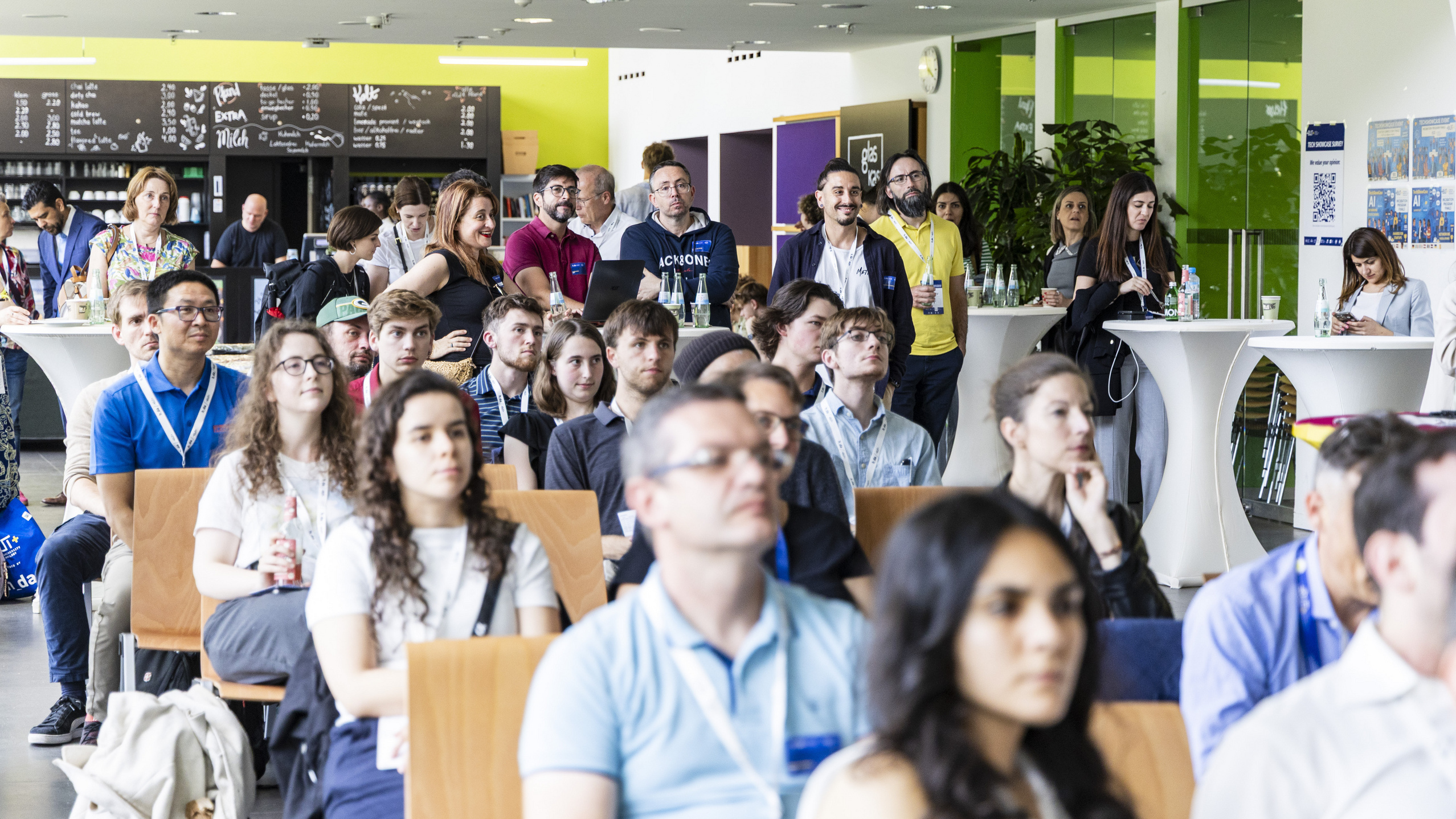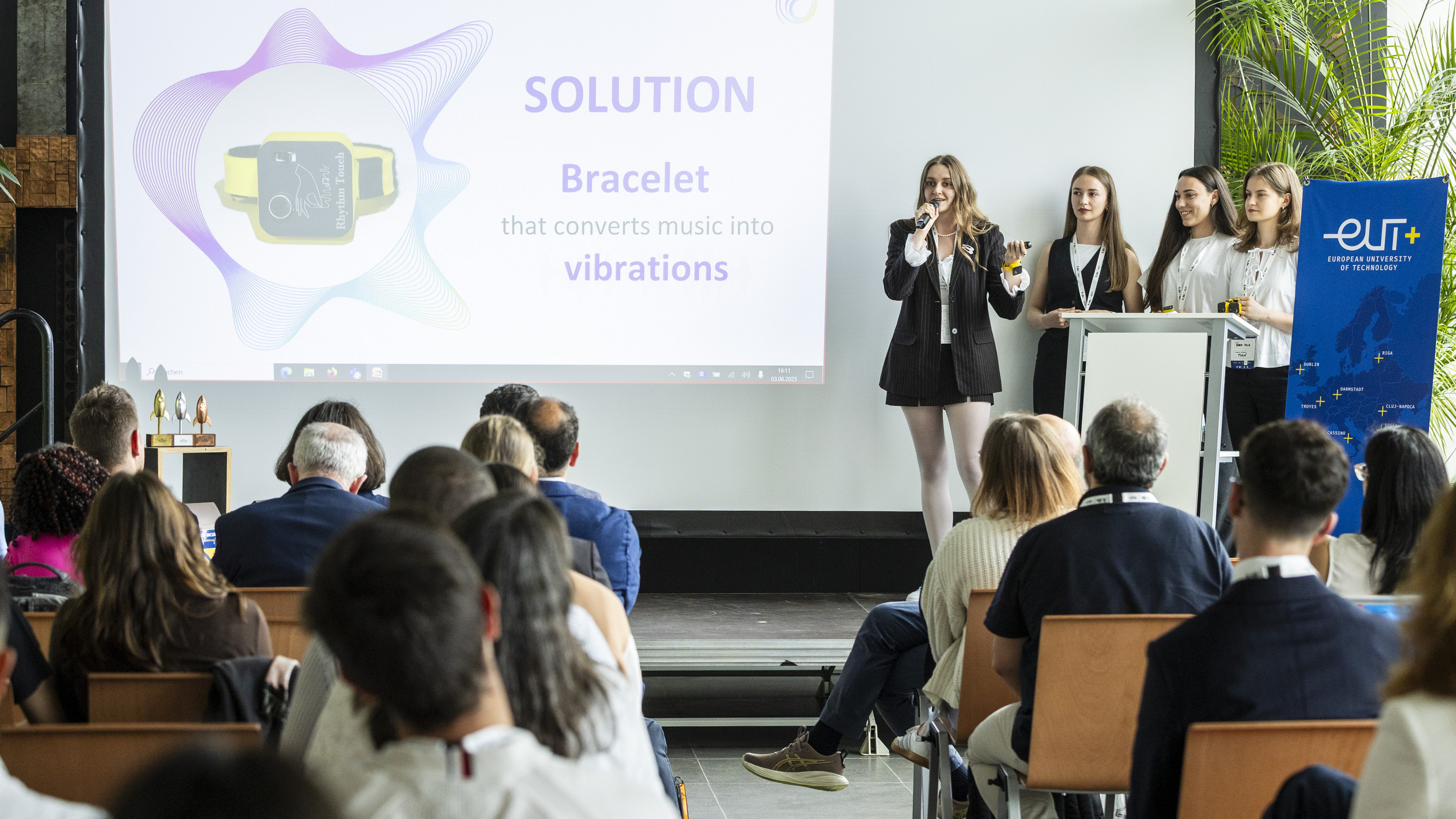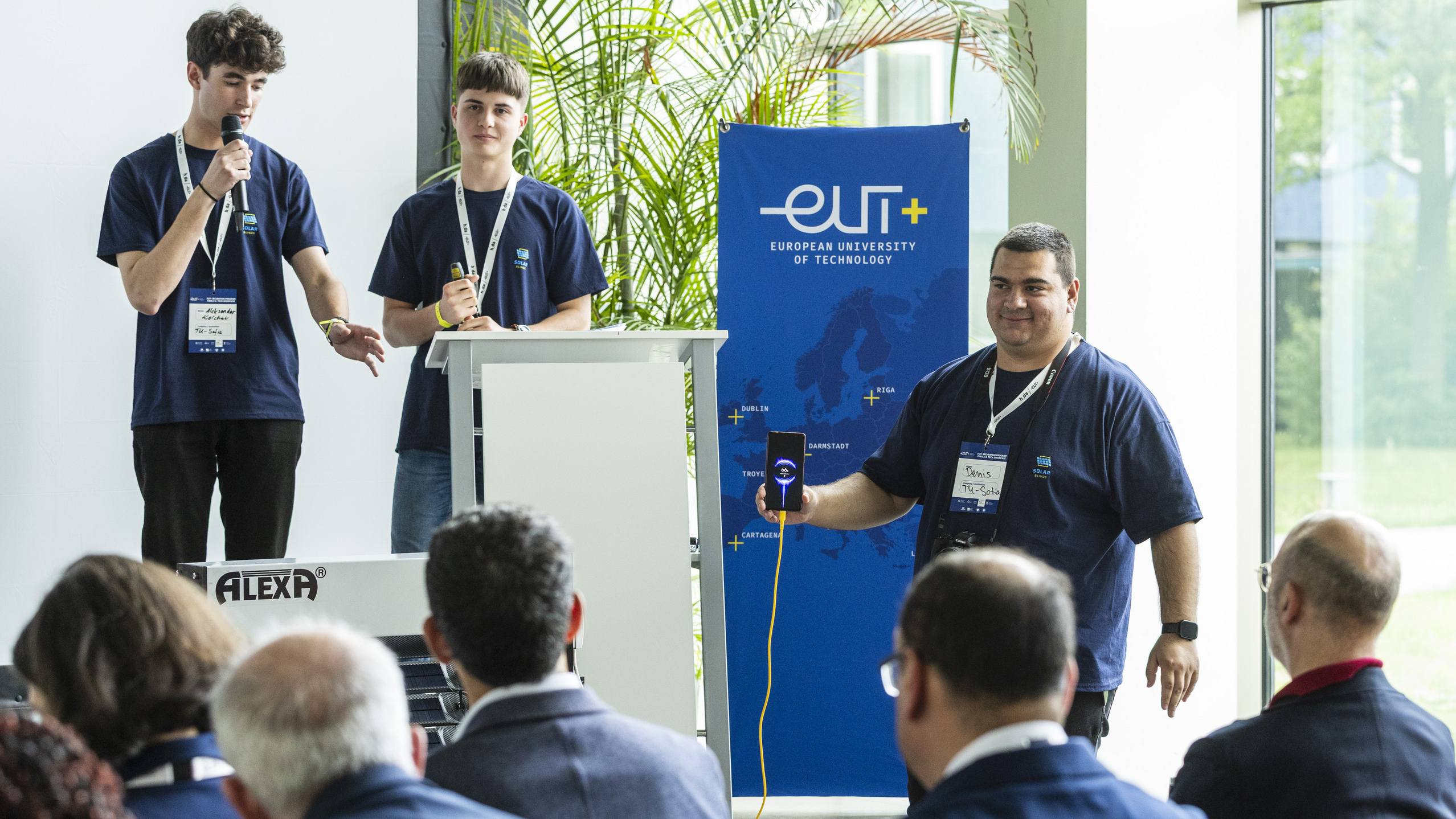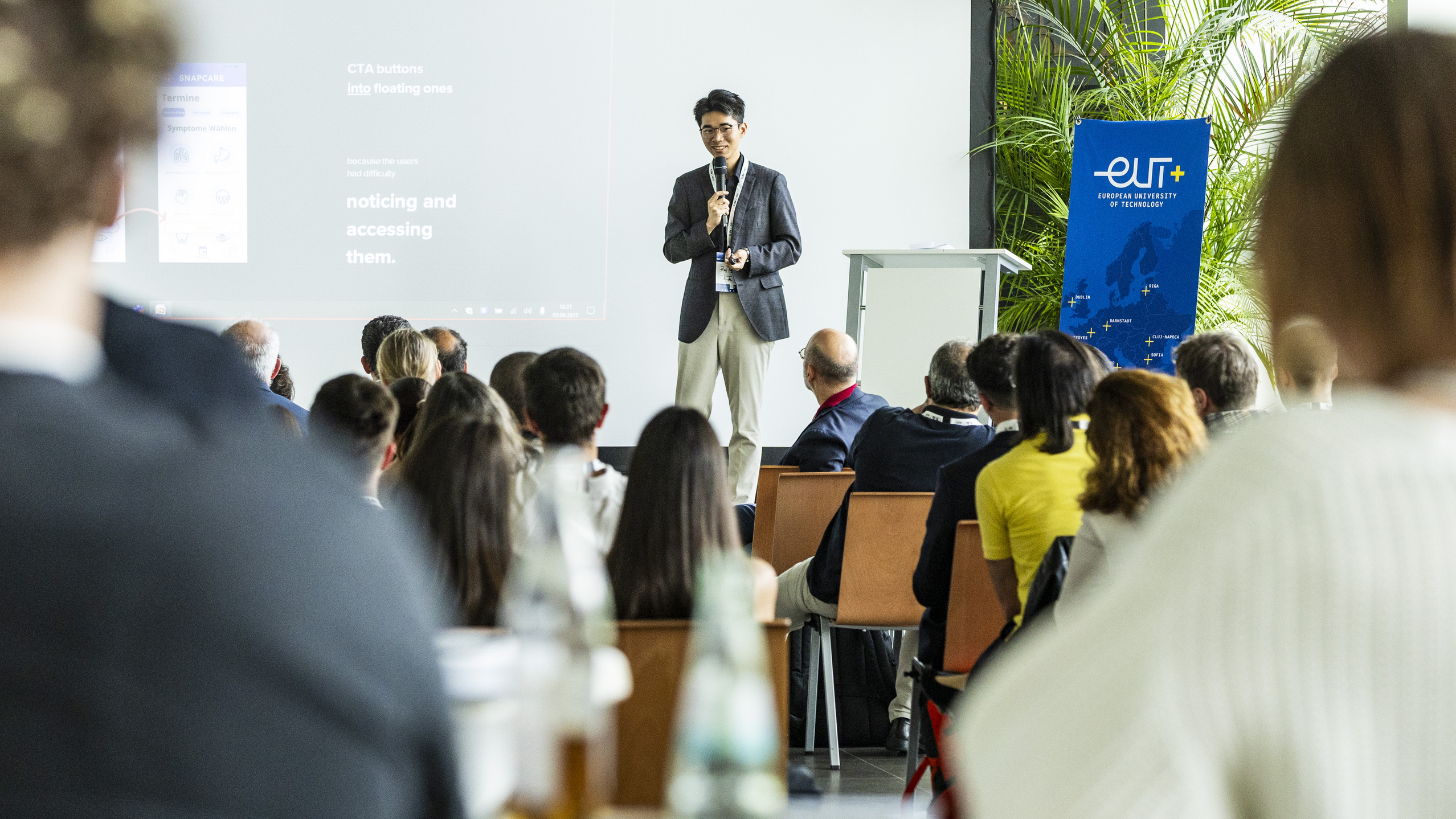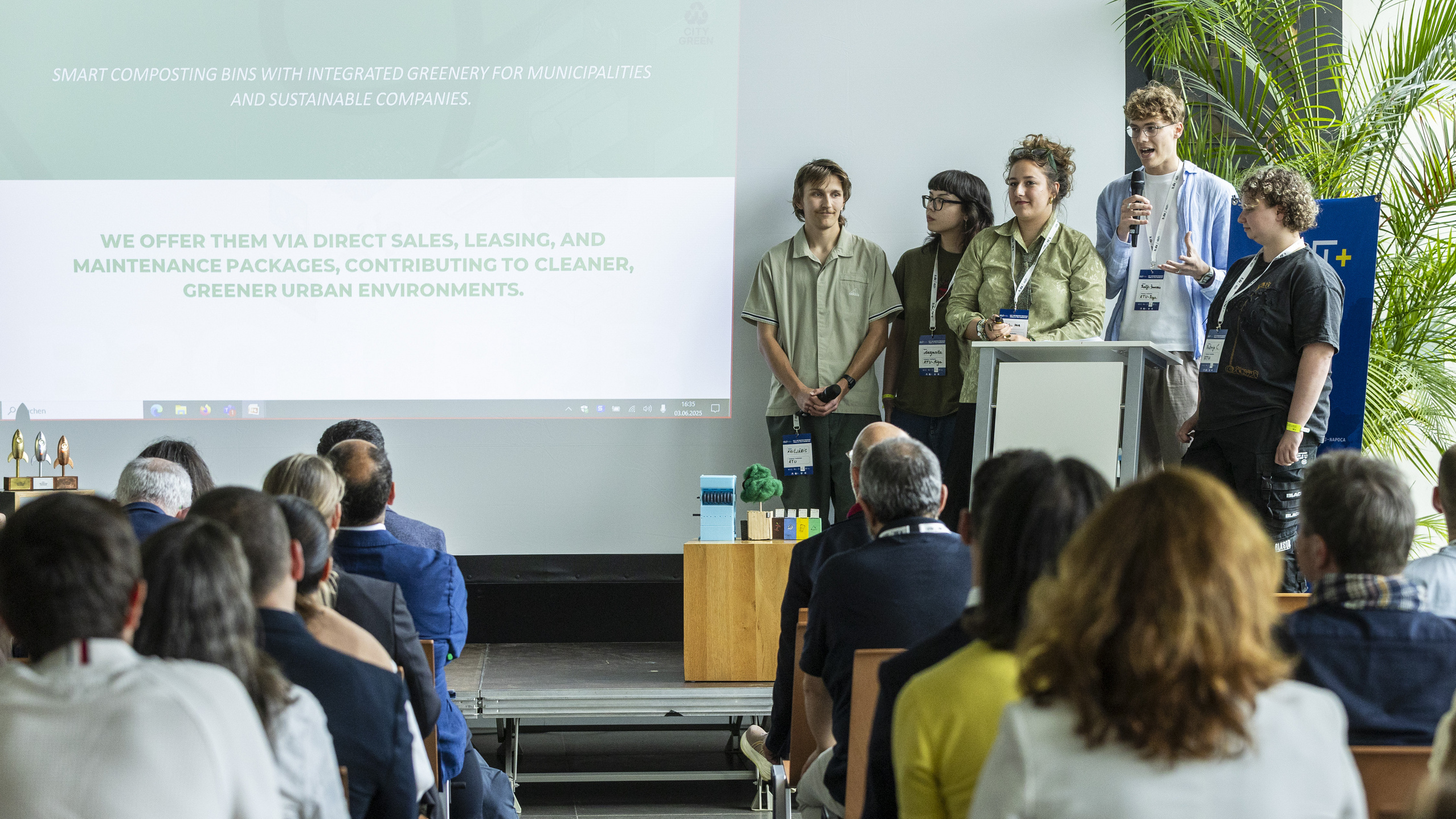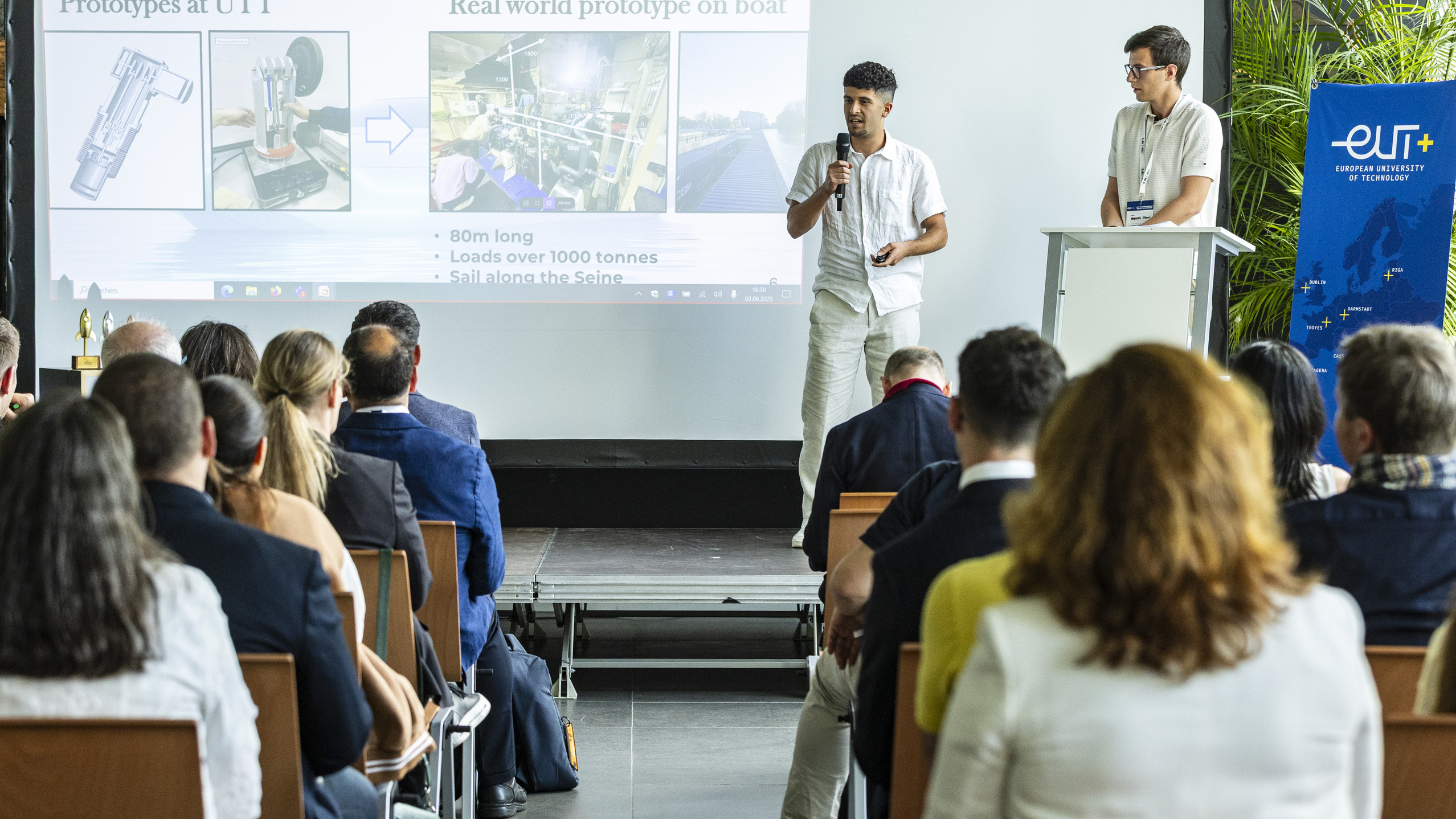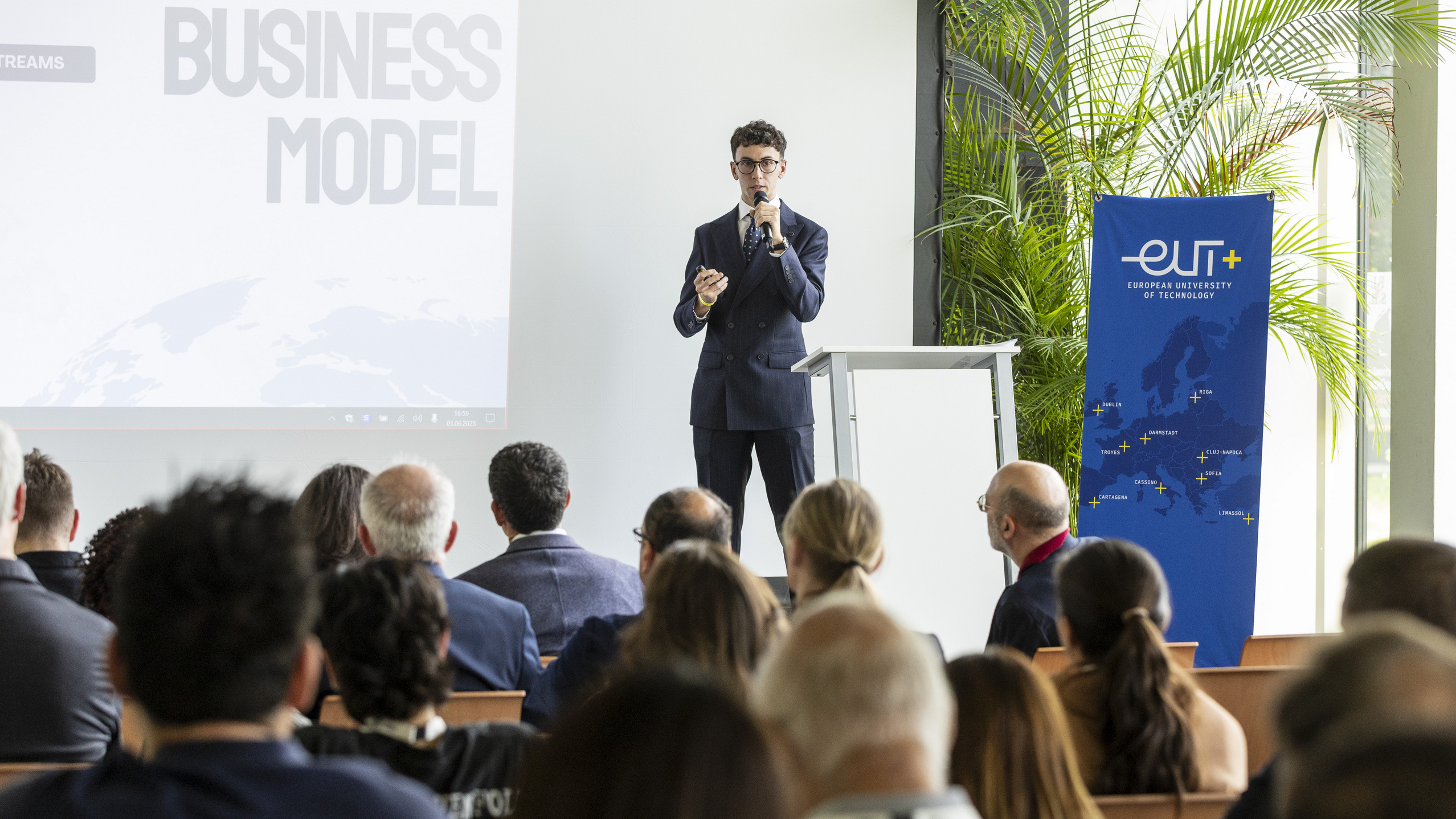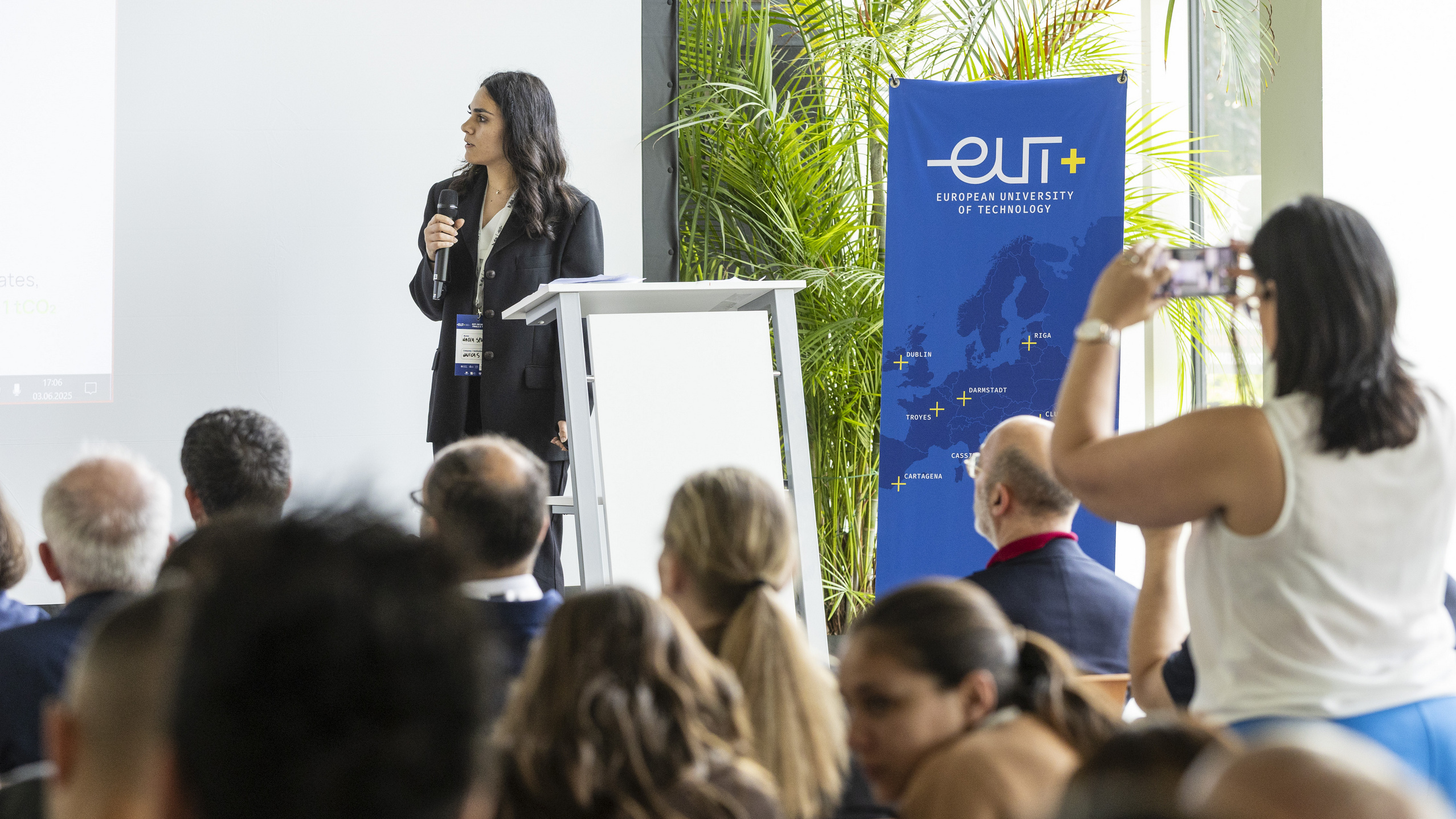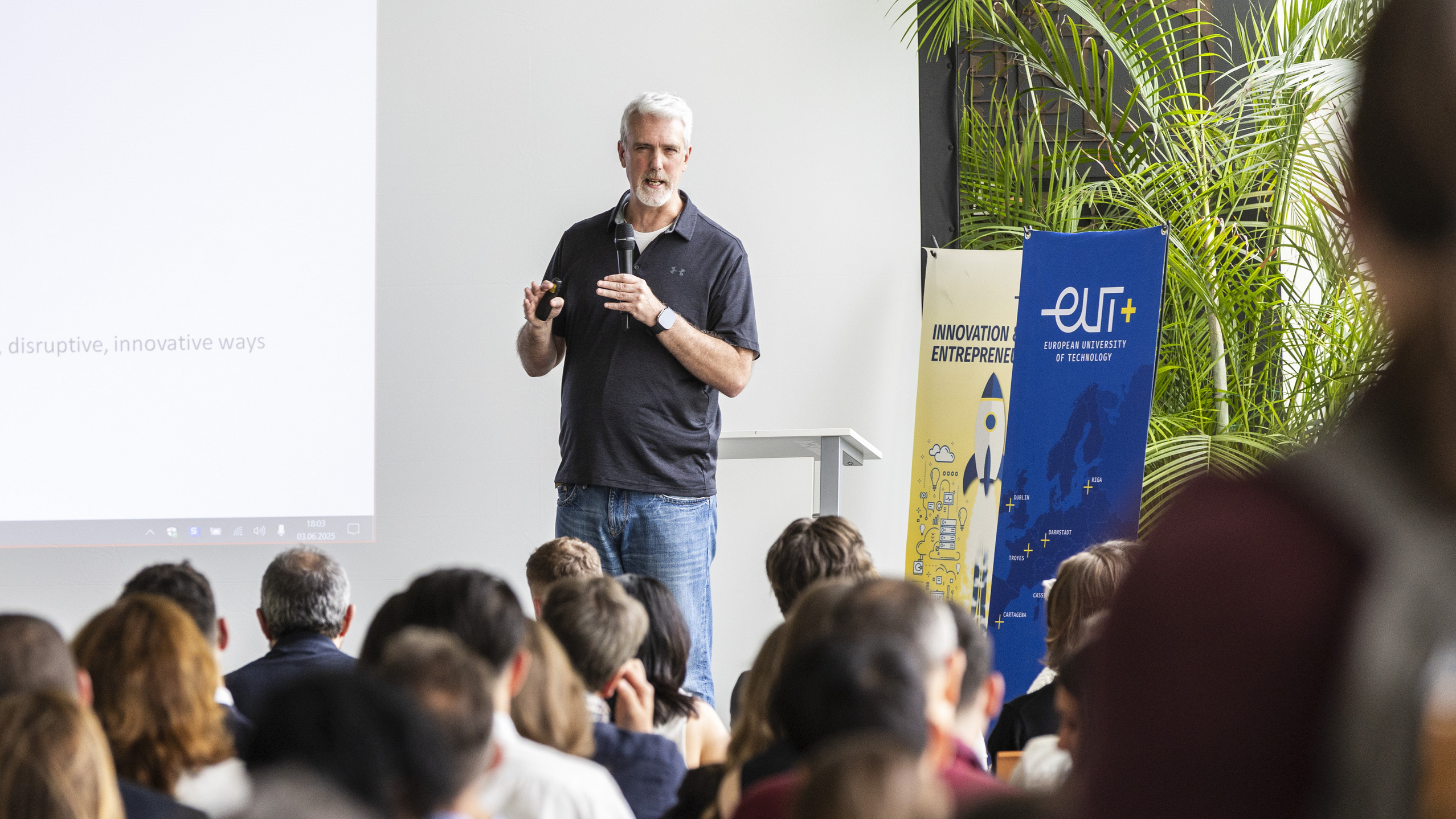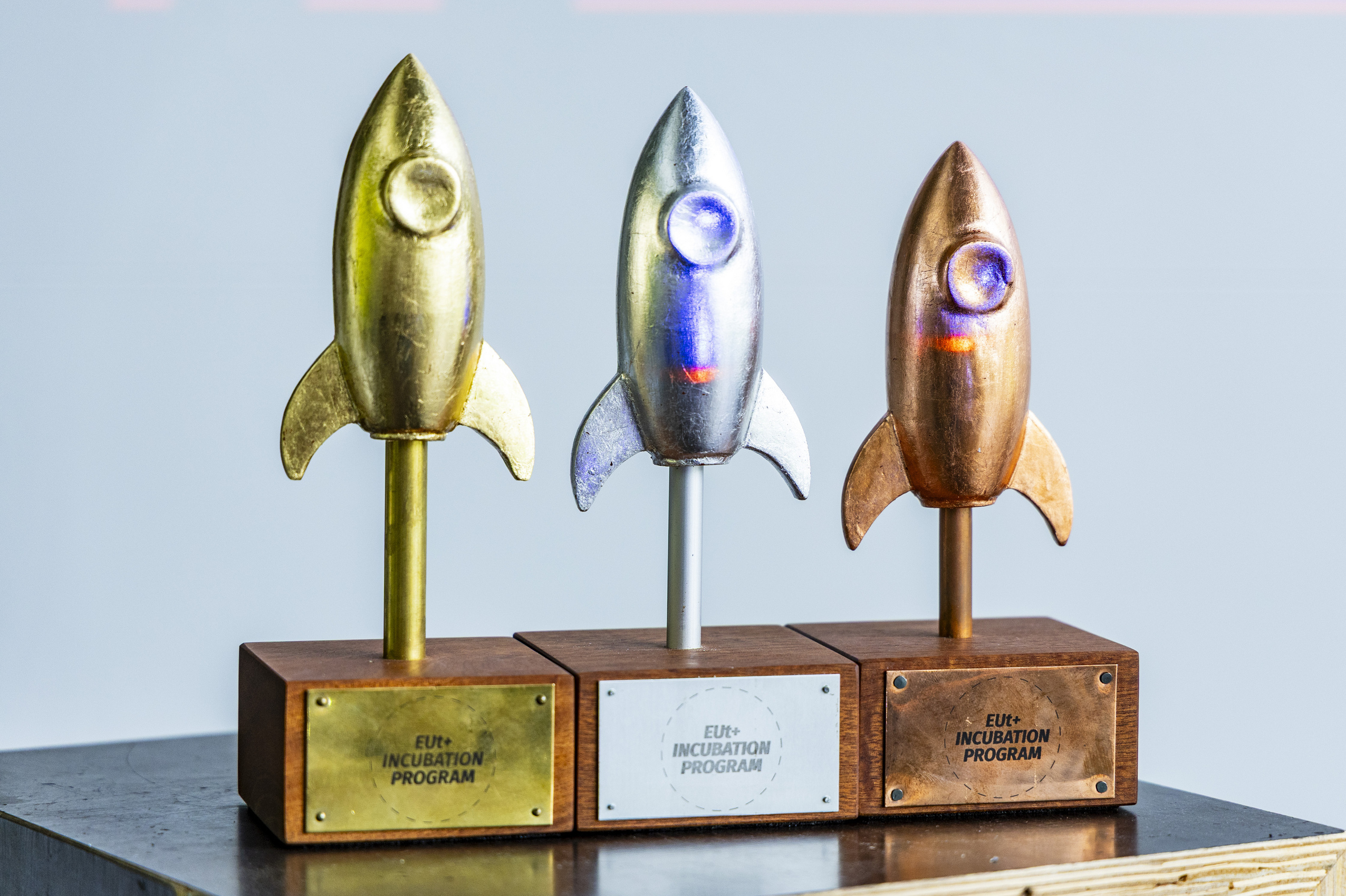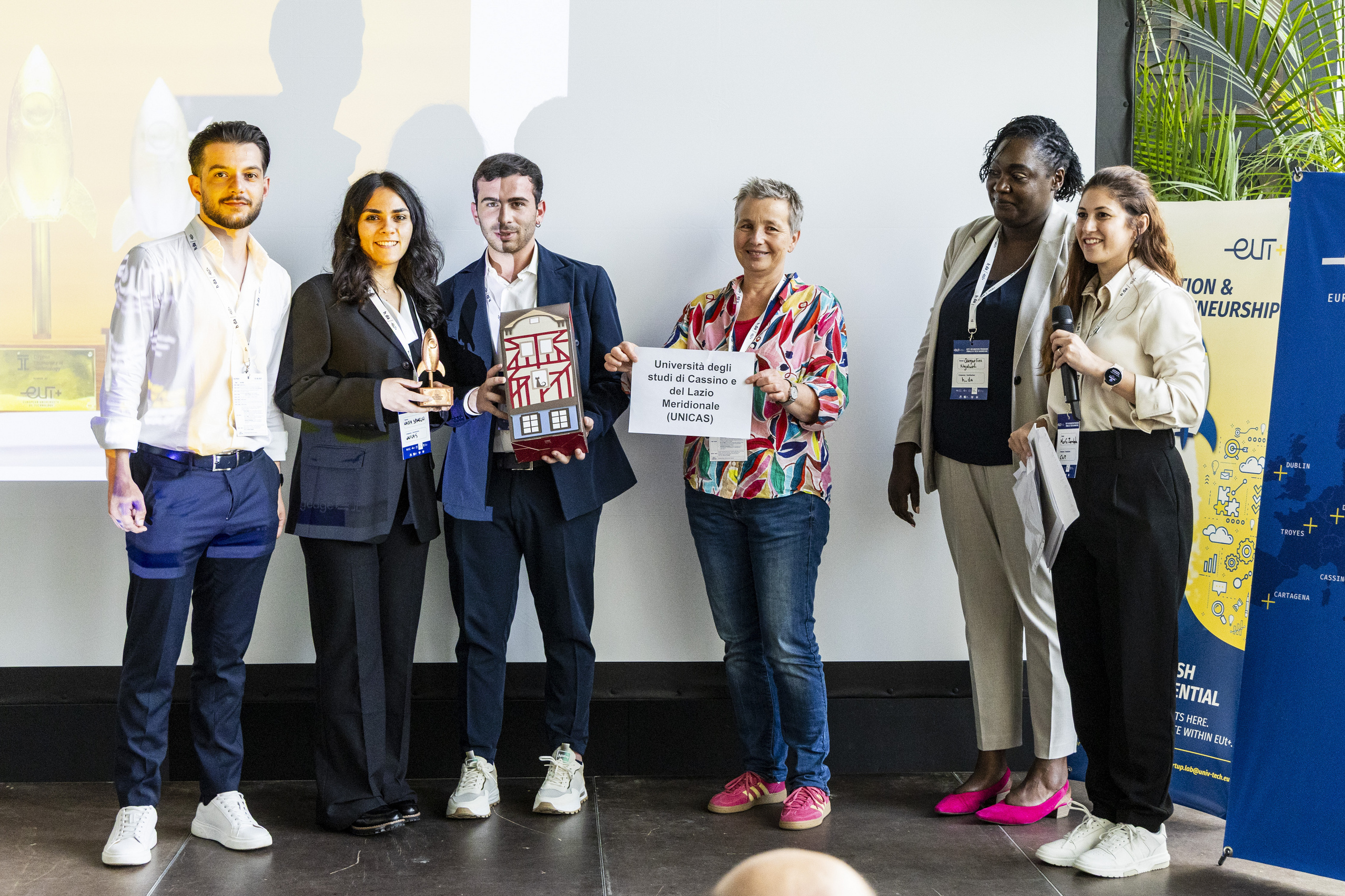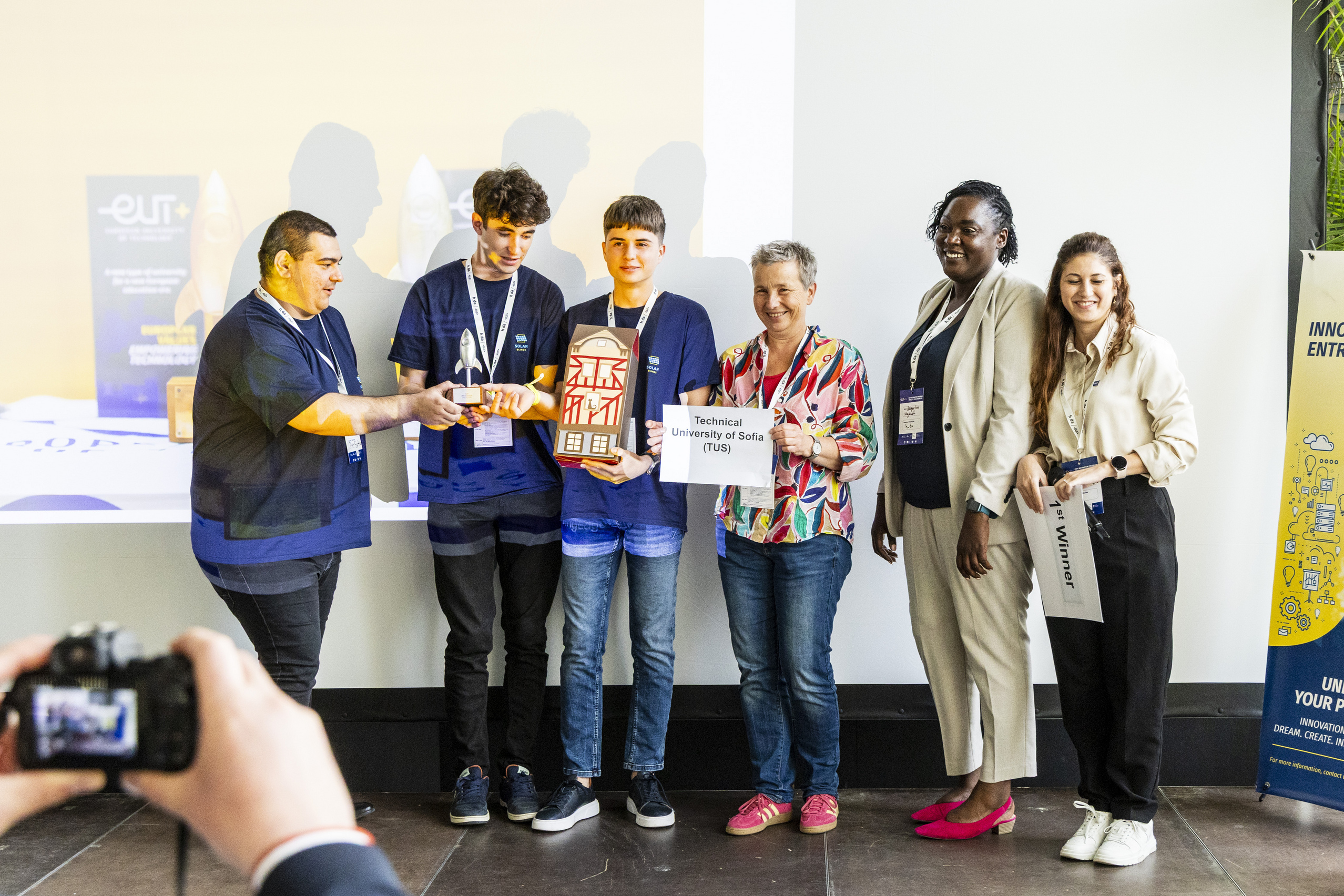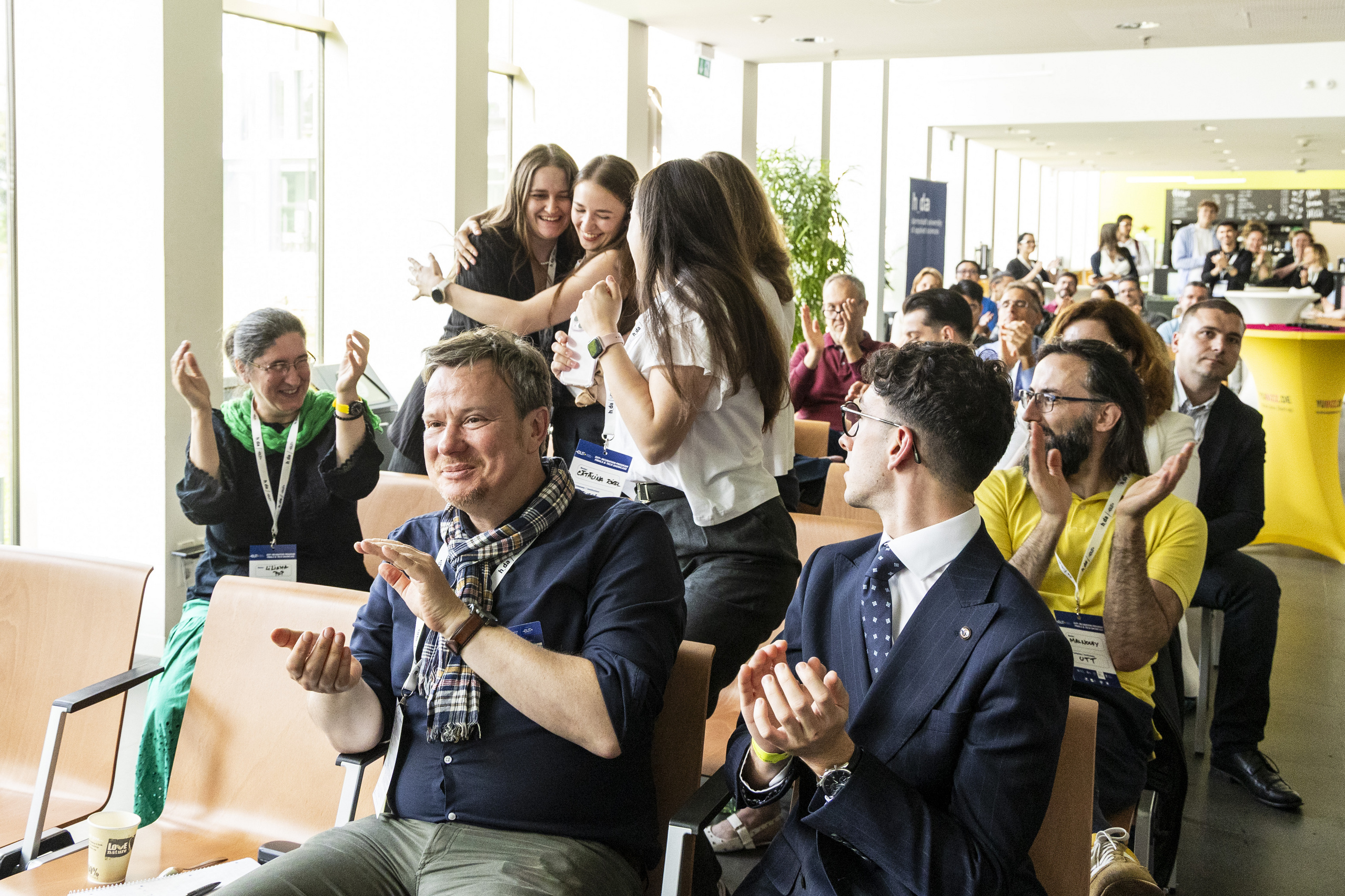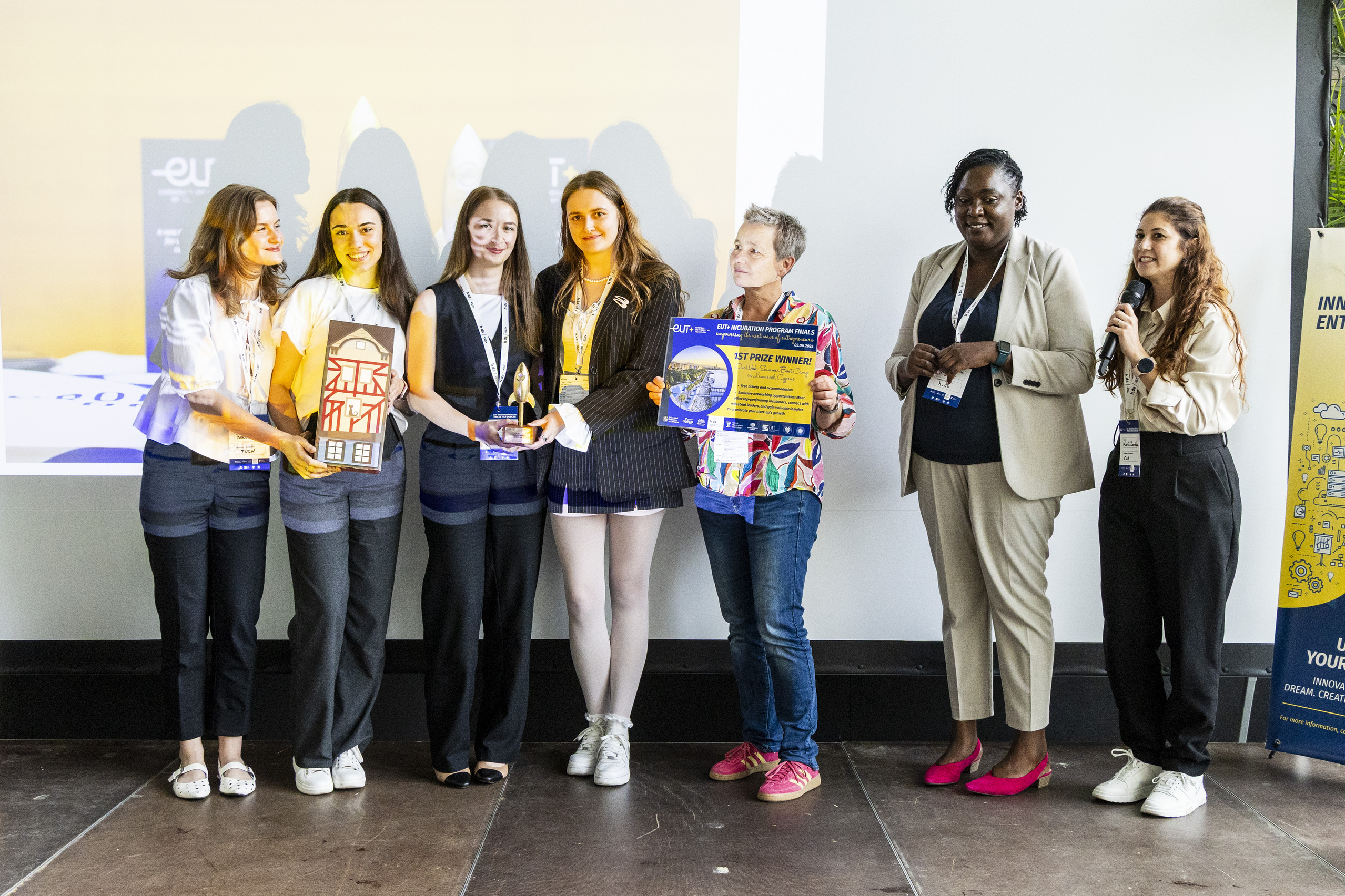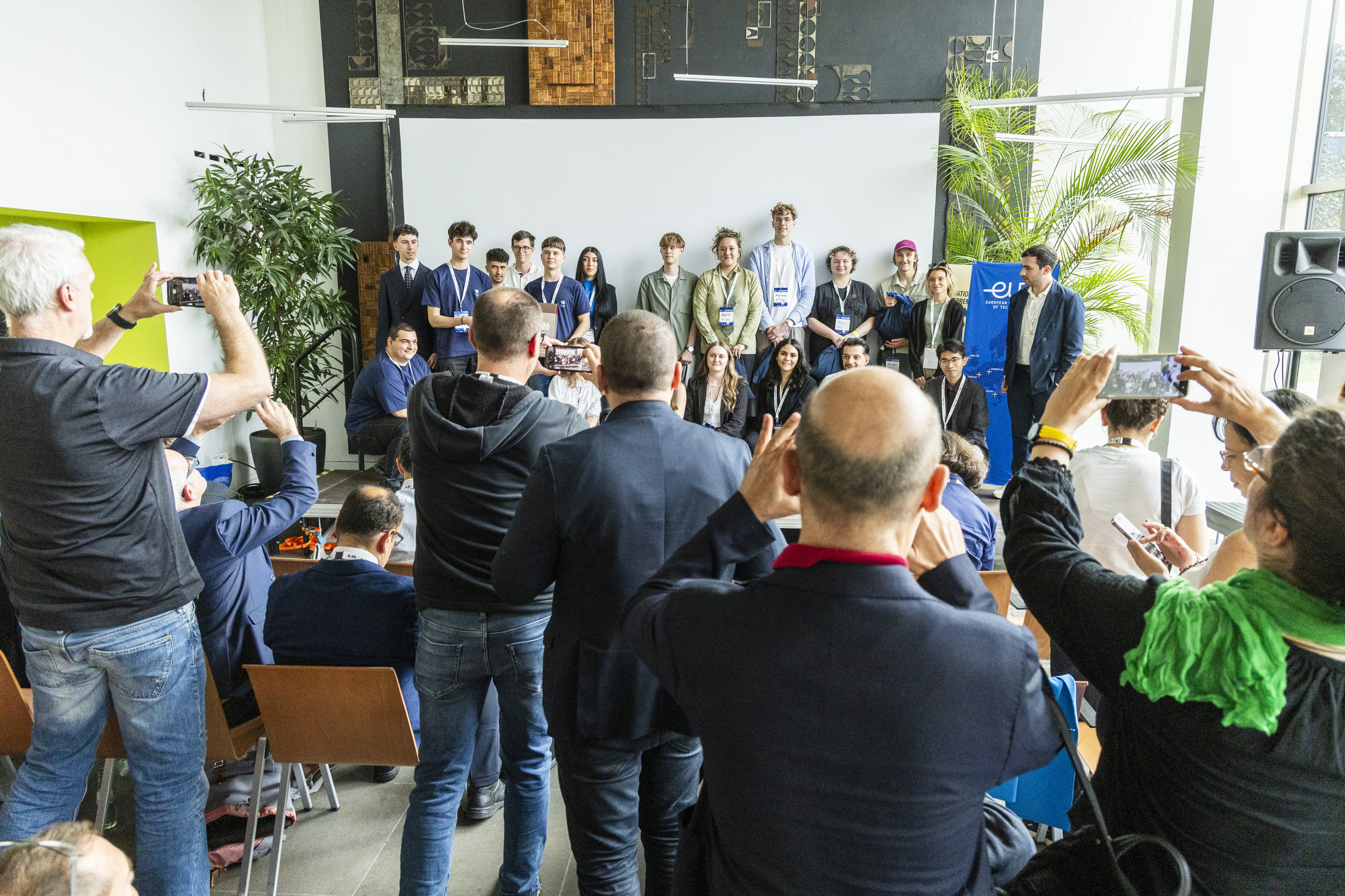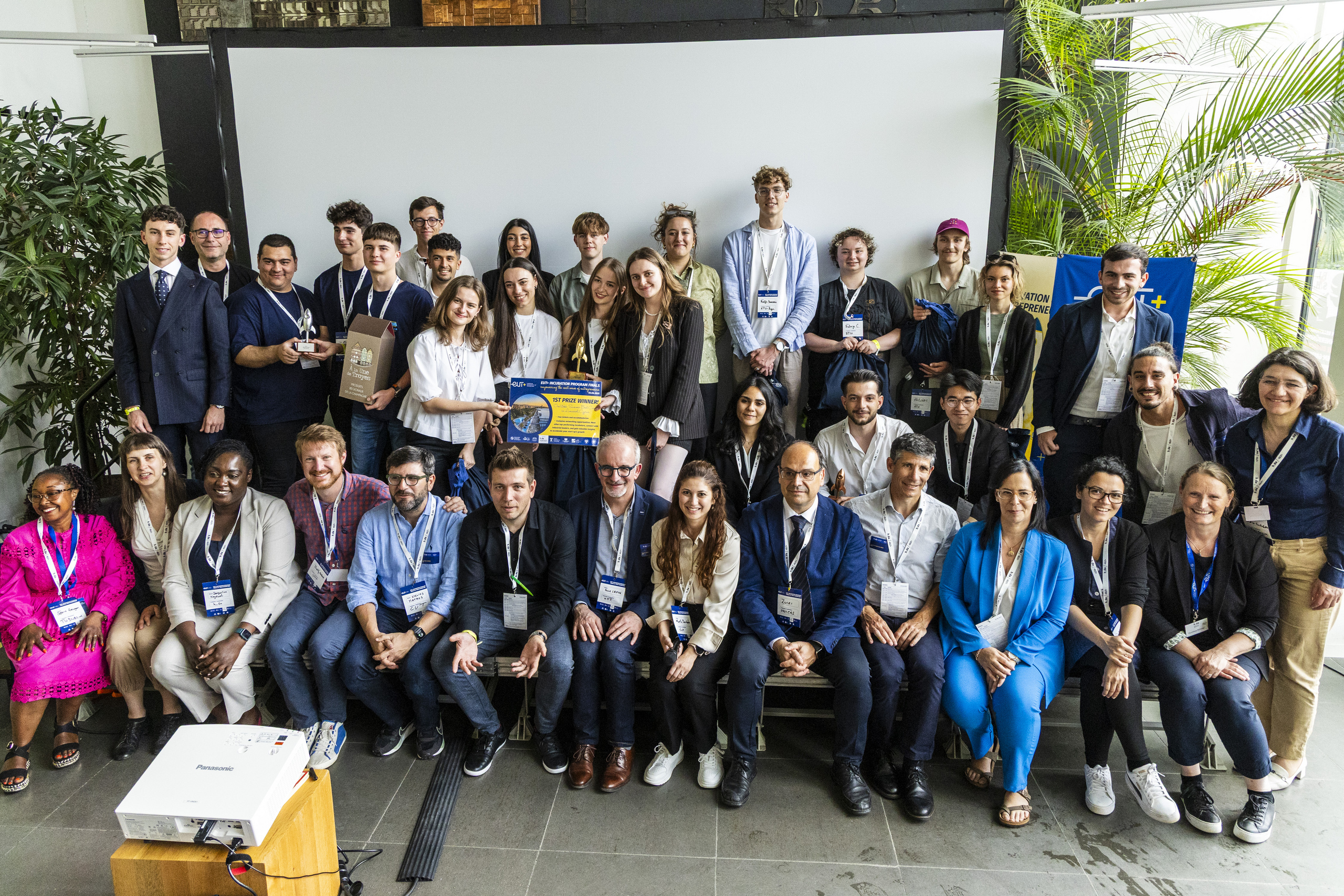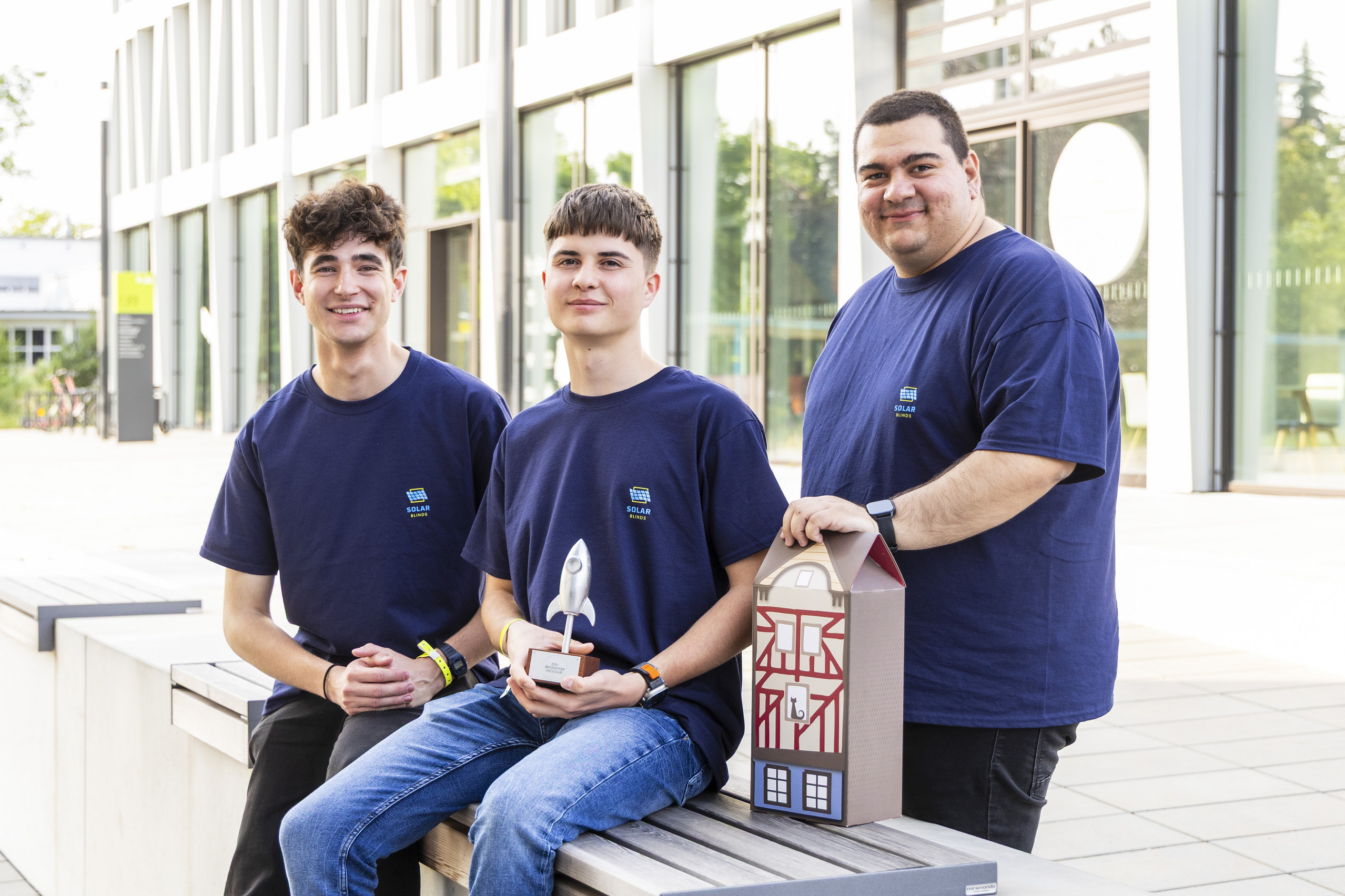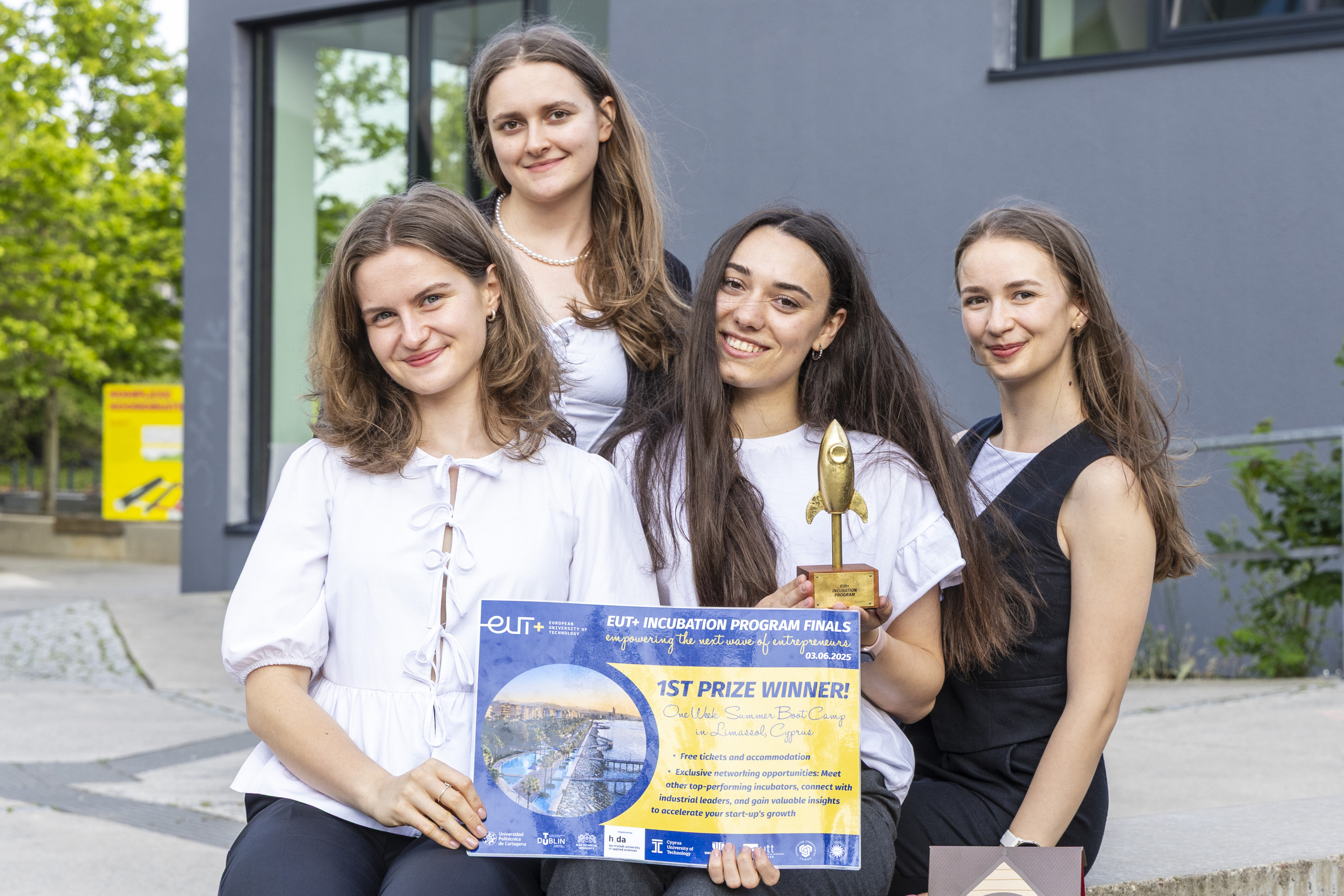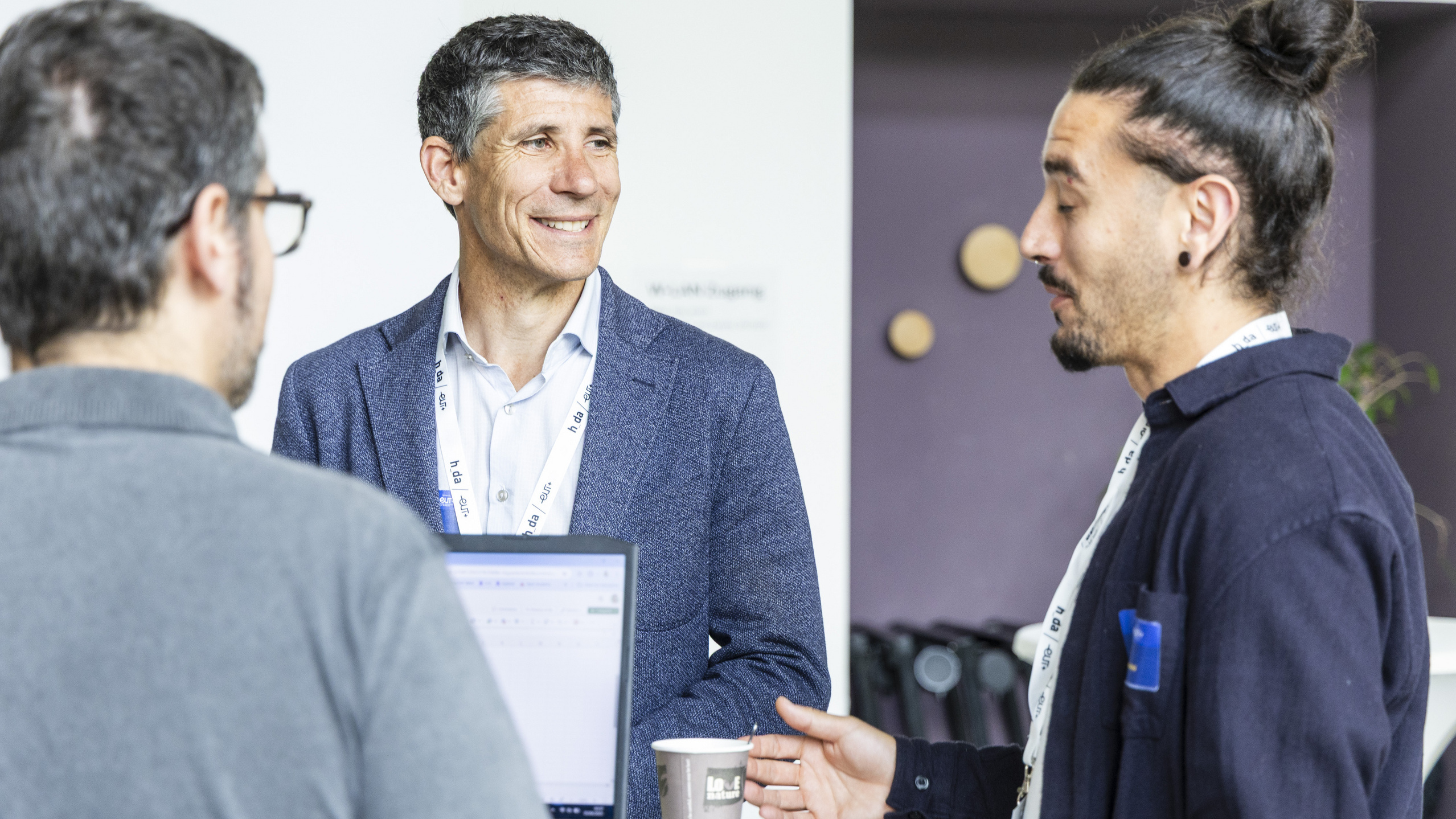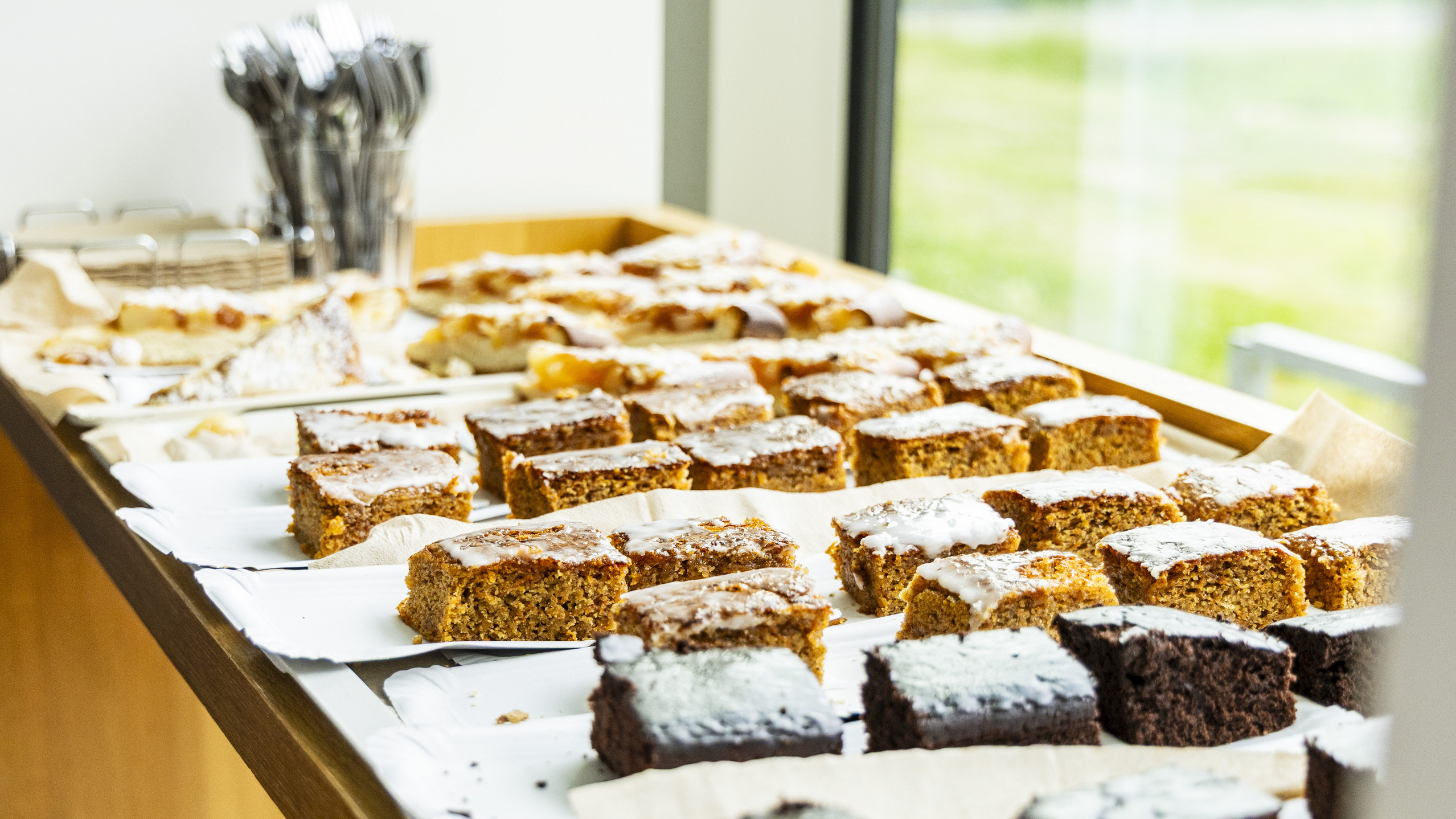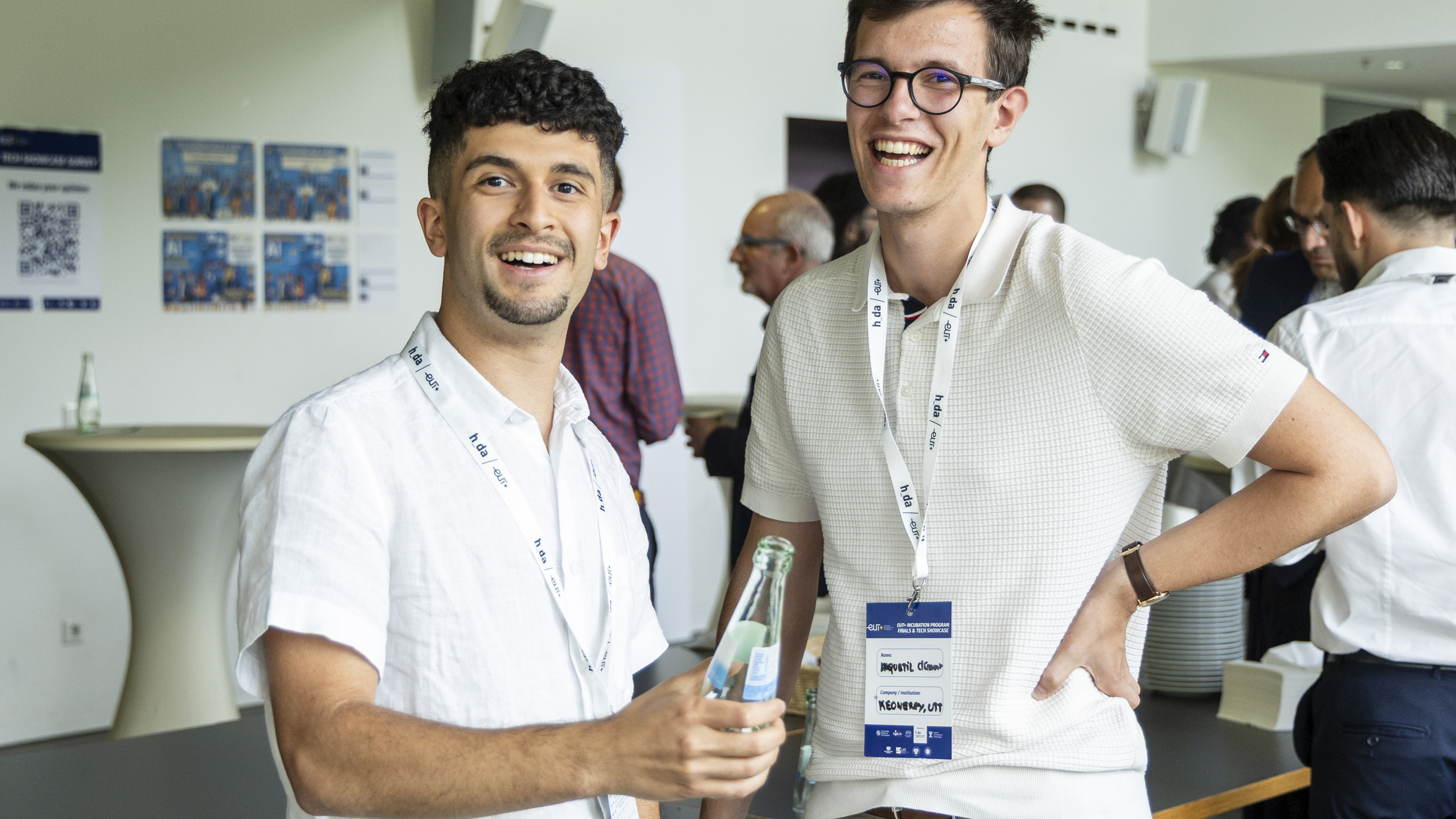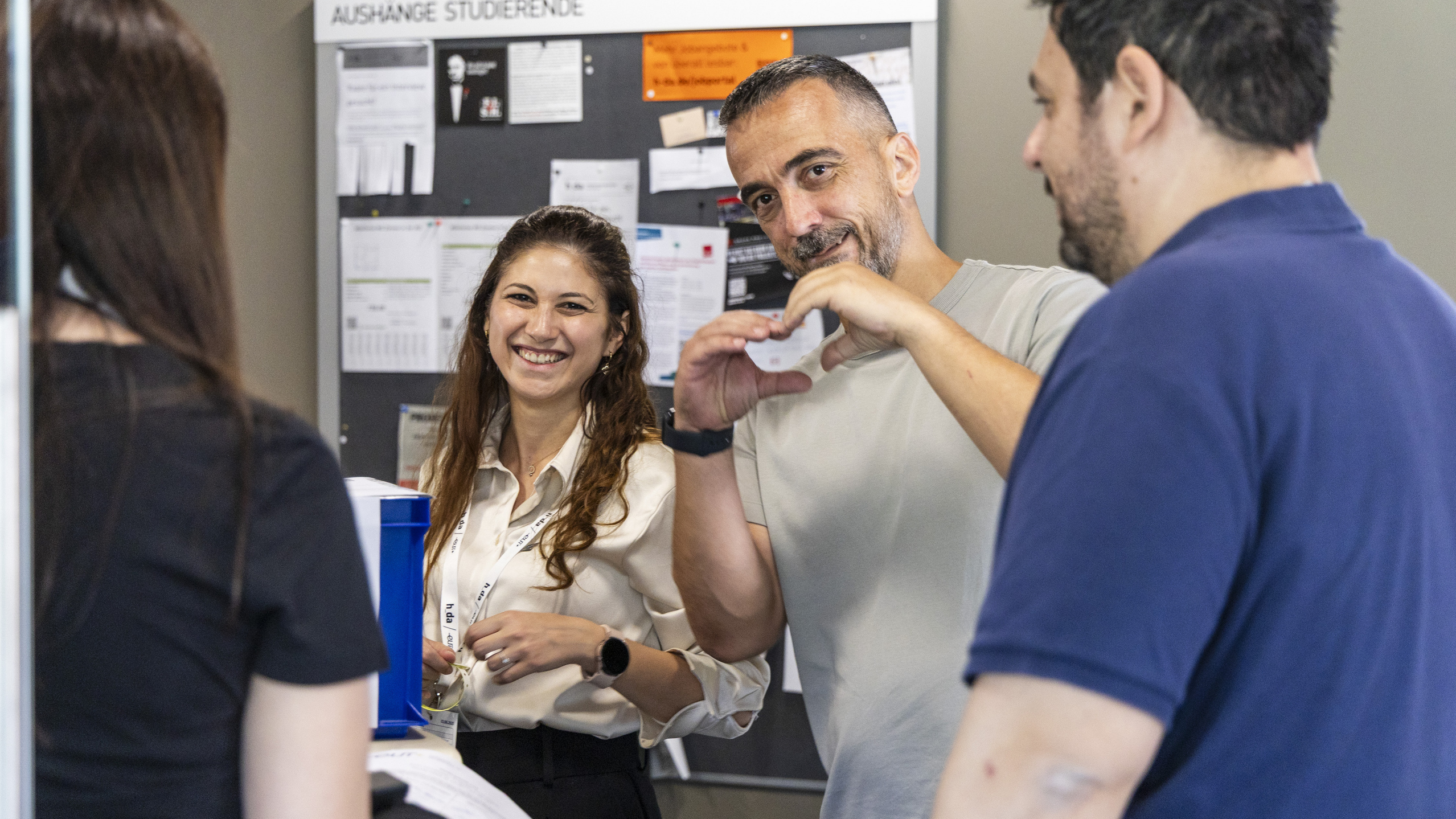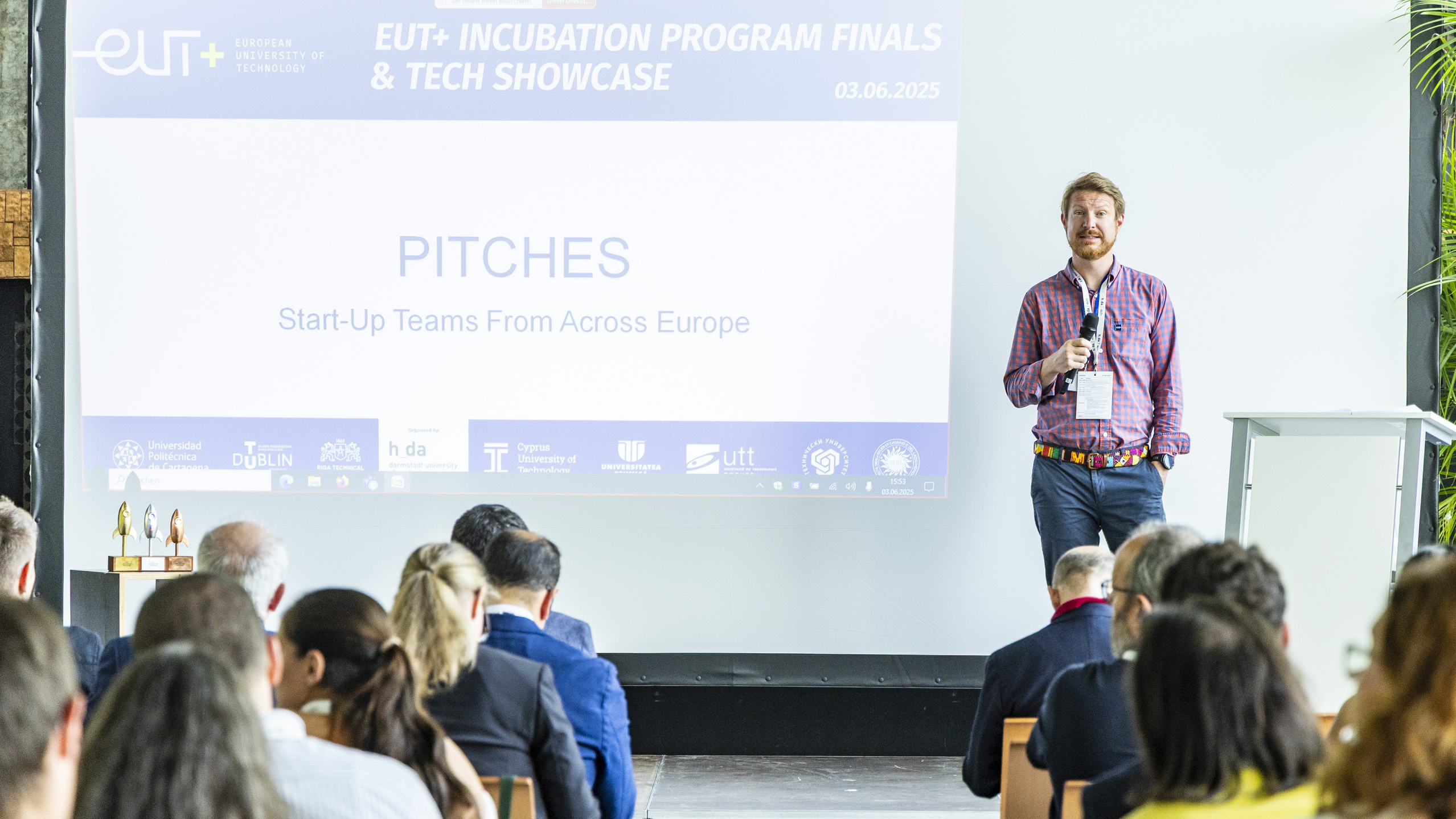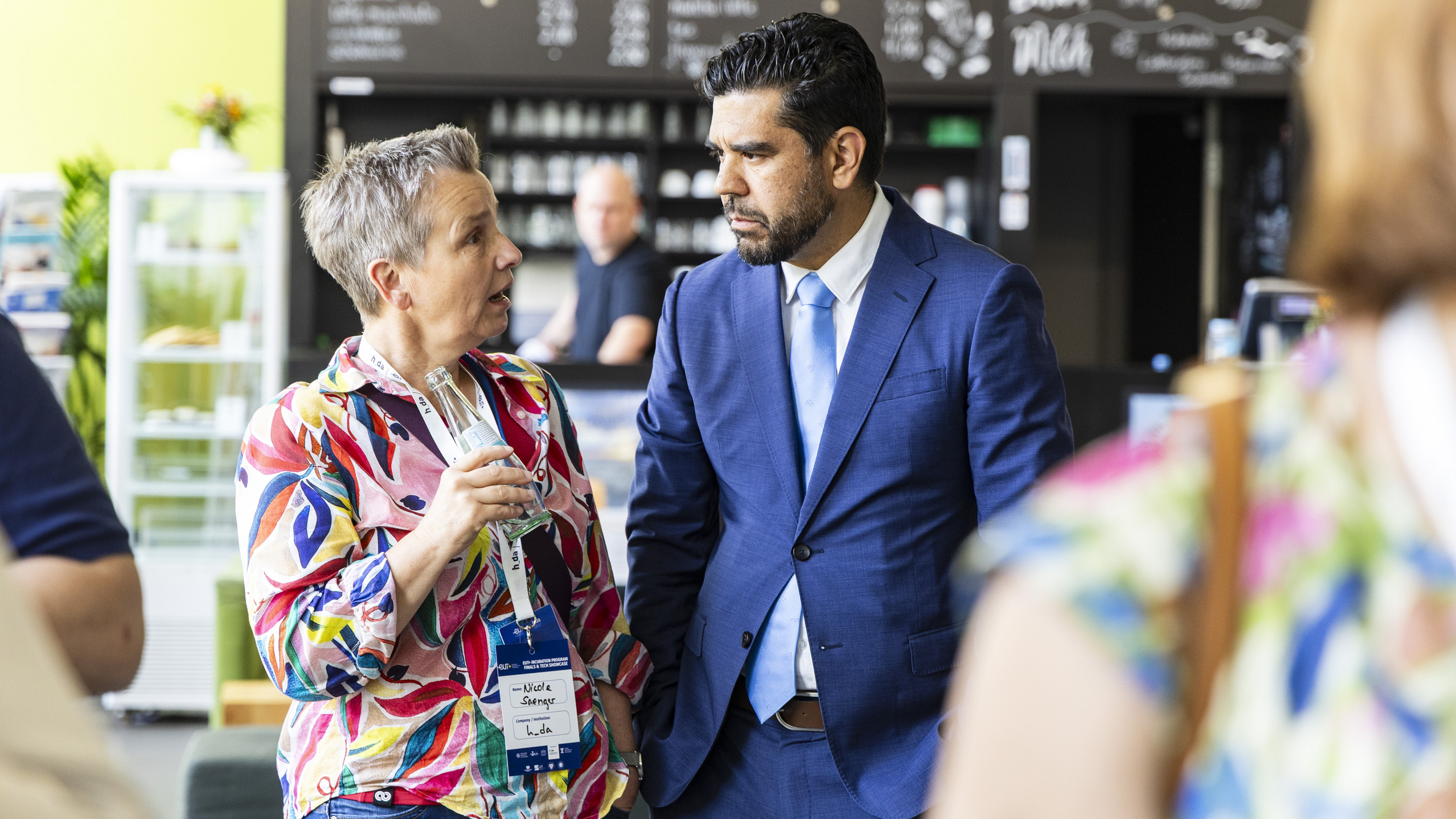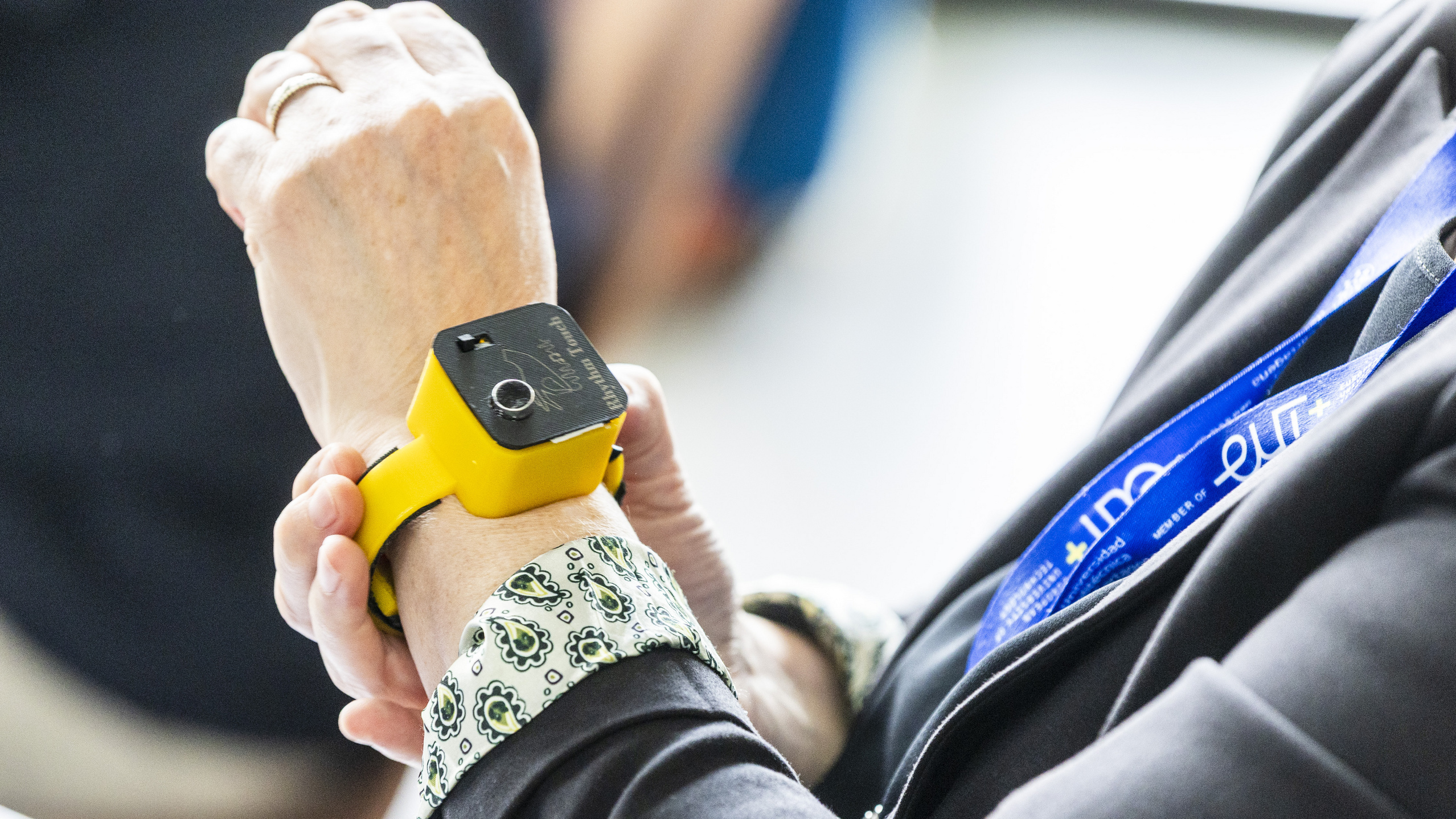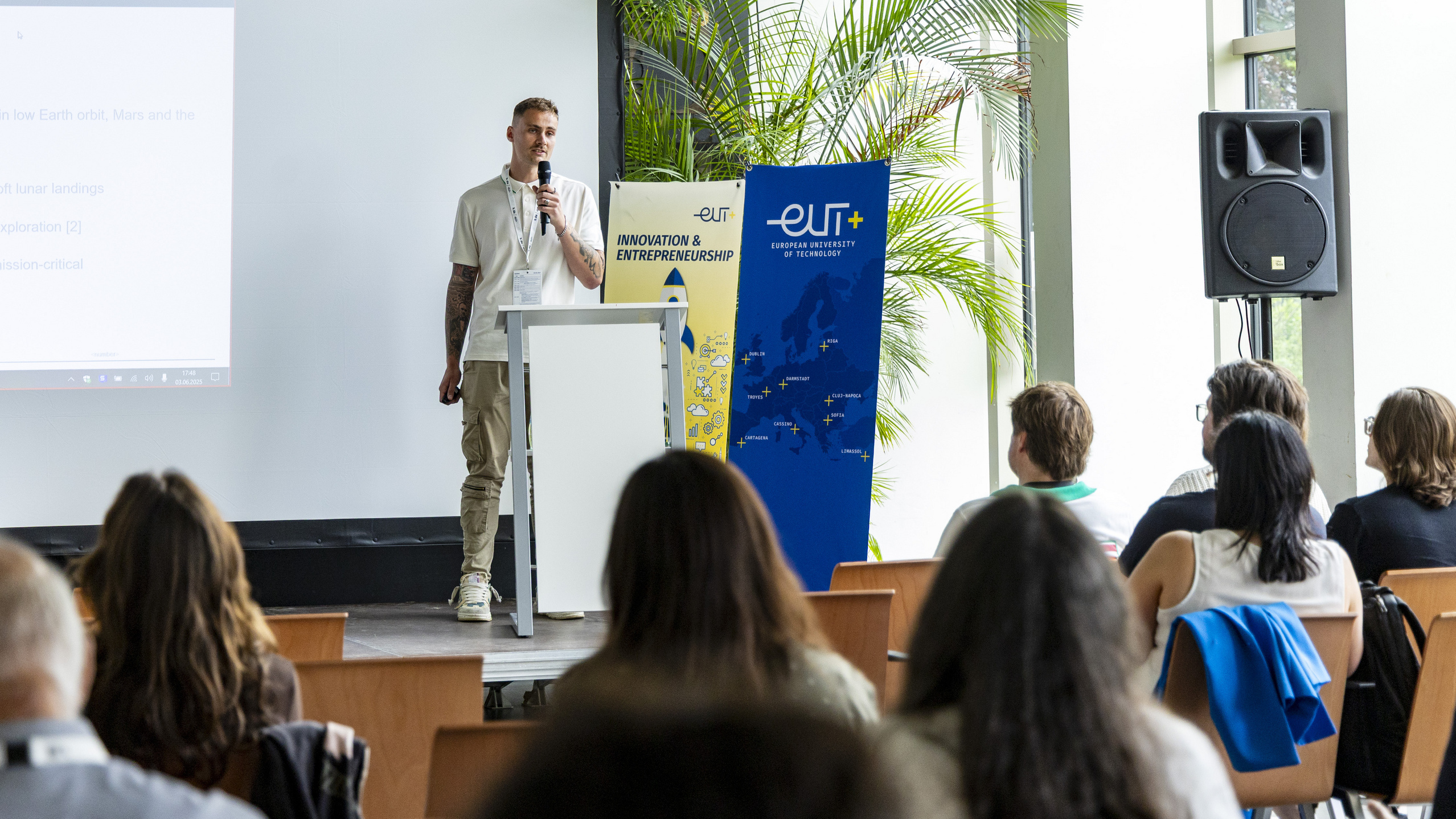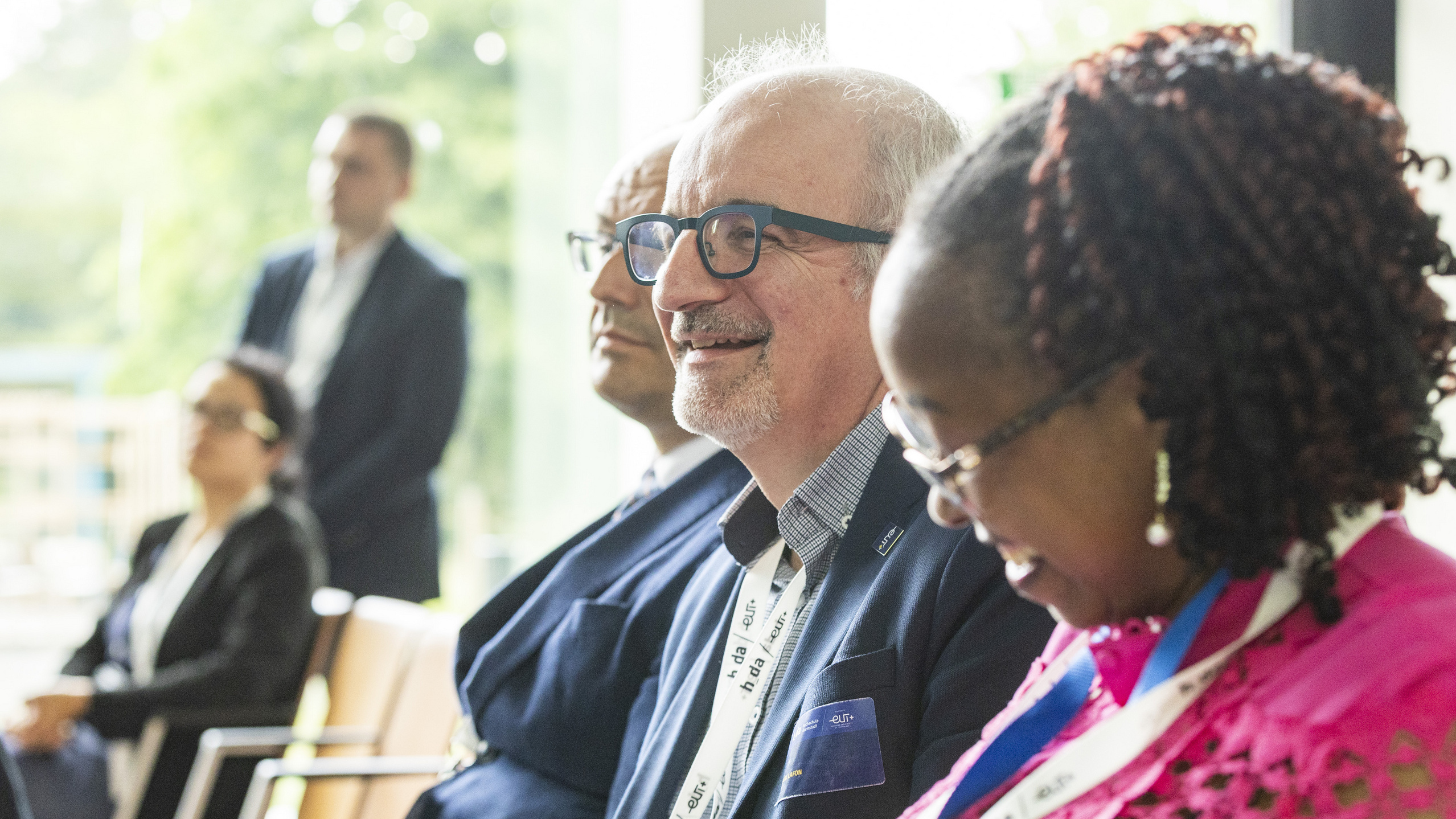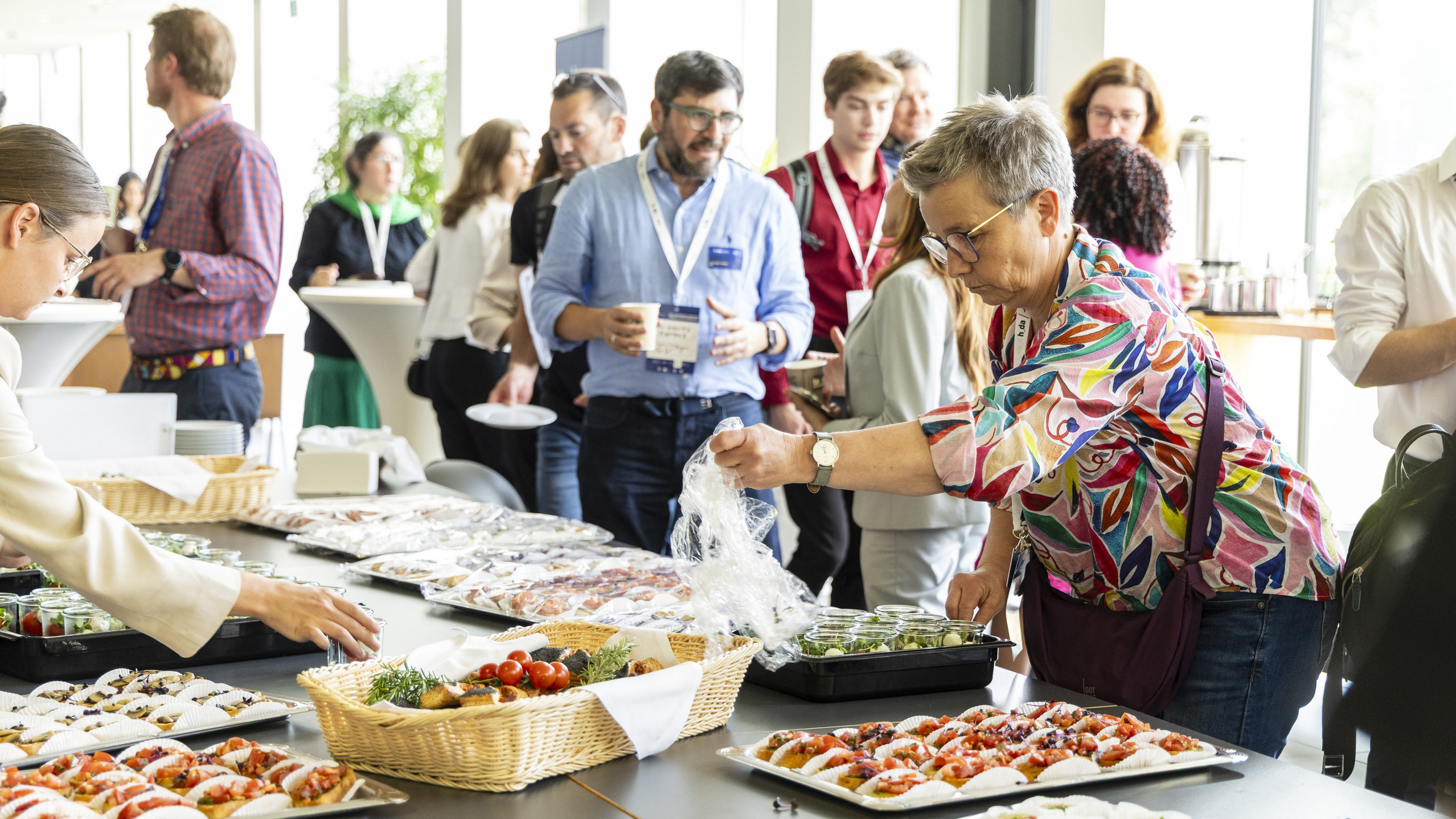Incubation Program

Shared vision, combined forces, concentrated innovations: More than 100 participants experienced an inspiring afternoon on the h_da campus on 3 June. Students, researchers, teaching staff, employees from nine European partner universities and h_da's regional network partners made the EUT+ Incubation Programme Finals and the TechShowCase a highlight of EUT+ Darmstadt Week. Official language: English. Participation: free of charge - but by no means for nothing. In addition to exciting people and delicious finger food, there was a veritable firework display of ideas.
By Daniel Timme, 5.6.2025
The famous Founder Spirit - you can feel it on the ground floor of the h_da high-rise building. Tension and anticipation, amazement and laughter, happiness and relief are in the air. Coordinated by the EUT+ Start-up Lab and organised by h_da, the finale of the first ‘EUT+ Incubation Programme’ will take place as a pitch event in Café Glaskasten. The ‘TechShowCase’ will also provide a showcase for the Alliance's (joint) research work in the field of artificial intelligence. An exciting mix. It sizzles.
Prof. Dr Arnd Steinmetz, h_da President, looks out over the packed rows of chairs as he welcomes the guests at around 2.30 pm. ‘When we talk about start-ups, the USA is always seen as a role model. I think some things are different in Europe – but there is great potential here too,’ he says, paving the way for everything that follows.
First of all: two start-up trips. h_da graduate Janine Weirich reports on how she and fellow student Géraldine Ulrichs developed the start-up Xeem – a platform that uses business cases to connect young people and companies. She passes on key experiences to those interested in founding a company: ‘Be courageous. Build a network. Don't let setbacks slow you down.’ Johann Scherer, co-founder of the start-up Daidream, also briefly outlines the path of his company, which aims to bring educationally valuable content to children's overflowing screen time. ‘Validate your idea. Check carefully whether there is a market for it,’ is one of his pieces of advice. And: ‘The team is the most important thing!’
After the first of two breaks, which offer space for discussions, snacks and drinks, the event moves on to its core: the ideas that have emerged from the six-month Incubation Programme. At the EUT+ locations, 148 students developed 52 new business ideas. In nine online courses (masterclasses), experts from the EUT+ network imparted start-up knowledge to the teams – from financing and marketing to presentation techniques and patent law. One idea was then selected at each university to go forward to the final pitch in Darmstadt.
Ideas reflect diversity
Eight of the nine European EUT+ locations are represented in the final: five teams and three solopreneurs. The framework: A maximum of five minutes per pitch, followed by two minutes of questions. The presentation format, which only leaves room for the most important points, is part of the essence of such pitches. ‘Start-ups have to learn as early as possible to convey briefly, clearly and comprehensibly what their idea is and what problem it solves,’ says Dorothea Boehmer. The start-up consultant from YUBIZZ, h_da's start-up initiative, follows the pitches particularly closely as a member of the jury.
Presenting your own idea in a competition in front of an audience under time pressure in English – a real challenge. Despite all the nervousness, the young founders sometimes succeed impressively well - for which there is much applause. The range of ideas reflects the diversity of the participating nations and universities. Cyprus came up with ‘SoulConnect’, a digital platform for mental health. Spain has developed ‘TrustCertiCar’, a verified marketplace for used car buyers. Latvia has developed compost bins with integrated sorting boxes and greenery (‘City Green’). And France is supplying ‘Keonergy’, a prototype for converting unused waste heat from ship engines into electricity.
Huy Nguyen, business psychology student and solopreneur, pitched for h_da. He won over the local YUBIZZ jury in the semi-final. His idea ‘Snapcare’ aims to create an advanced solution for arranging medical appointments and is primarily aimed at people with an international background. The tool should make it possible to make appointments for treatment in your own native language and at the desired time. ‘So without the language barrier or telephone anxiety,’ promises Huy Nguyen.
TechShowCase: Impressive AI applications
After the final pitch, the jury retires to deliberate. Now the stage belongs to the TechShowCase and scientists from Dublin, Limassol, Troyes and Darmstadt. They present current research work from the European Alliance in the field of artificial intelligence. PhD student Patrick Bauer will present a joint PhD project between UTT (Troyes) and h_da. In this project, AI-based data is analysed in order to automatically recognise craters on images of the lunar surface. A concern of the European Space Agency ESA, which is a partner in the boat, or rather spaceship.
Dr P.J. Wall from the Technical University of Dublin shows how AI can help us with regard to the Sustainable Development Goals (SDGs). In the exemplary low-tech projects mentioned by Wall - clean water in India, safe cookstoves in Uganda – AI helps to analyse data on water pollution levels and pollutants in the air. Finally, Andreas Prodromou from the Cyprus University of Technology will present ‘SPECTER’: a powerful, easy-to-use tool for AI-supported operational decision-making in manufacturing SMEs.
A lot of substantial input - Huy Nguyen agrees: ‘Today I can meet a lot of interesting people and take a lot away with me.’ He is eager to learn, ambitious – and self-critical. Small technical problems with his presentation annoy him, but don't throw him off track. ‘It doesn't matter to me whether I win today or not. I'm here to learn’, he says and pulls a piece of paper out of his pocket, on which he spontaneously jots down another suggestion for improvement.
Three teams on the podium
Almost on schedule at 6.30 p.m., the excitement reaches a peak. Then Prof Dr Nicole Saenger, Vice President for Research, Transfer and Sustainable Development, takes to the stage to announce the three winning teams. She opens the envelope, pulls out a sheet of paper and - third place goes to the University of Cassino and Southern Lazio for the idea ‘Graphene Breathe’! The five-member Italian team is working on a business model to utilise greenhouse gas emissions from intensive livestock farming. Polluted air is to be cleaned using graphene oxide filters, which should reduce greenhouse gas emissions and their subsequent costs.
In second place, the jury chose the idea ‘Solar Blinds’ from the Technical University of Sofia (TUS) in Bulgaria. The three founders want to utilise the solar energy on building façades, which until now has mostly been lost. Their solution: intelligent blinds with integrated solar cells that can be orientated according to the sunlight. Advantages: clean and environmentally friendly energy, less use of air conditioning and more living comfort.
Cheers erupt when Nicole Saenger finally reads out the name of the winners: ‘Rhythm Touch’! Iulia Bara, Mărioara Mihali, Ioana Popa and Cătălina Rizel, four students from the Technical University of Cluj-Napoca (UTCN), enter the stage to loud applause. They have developed a wristband that converts music into vibrations - making it accessible to deaf people and people with hearing impairments. An idea that could be a great benefit for millions of people worldwide who are excluded from social activities such as music festivals due to a hearing impairment. ‘Change the World with Music’ is the claim that the four young Romanians have given their idea.
Exceptional idea presented in a great way
‘The winning team unanimously convinced the jury with their extraordinary idea and their great presentation!’ Dorothea Boehmer tells us. ‘They not only presented facts, but were also able to show the enormously positive effect of their invention in short video sequences.’ For their short, touching clip, in which deaf people dance to music thanks to the bracelet, the four of them took a minute out of their limited pitch time. The winning trophy they now hold in their hands – a golden rocket – proves that this was a wise decision.
Sunny reward for the winners of ‘Rhythm Touch’: they win a one-week summer camp in Limassol, Cyprus! None of the three solopreneurs made it onto the podium. Disappointed, Huy Nguyen? Not a trace. On the contrary. He points to the first note on his improvement suggestion sheet: ‘Team’. ‘I don't want to continue driving Snapcare forward on my own, I want to build a team next.’ Lessons learnt.
‘We received positive feedback from all sides for the organisation and the content,’ says Jacqueline Nyalwal. The EUT+ Research and Transfer project coordinator at h_da was responsible for the organisational aspects. She is now standing on the sidelines with a smile on her face and sees many beaming faces. ‘The composition of the teams was very interesting. Their topics were innovative and well prepared,’ she says. ’I was particularly pleased about the participation of our partners from the start-up ecosystem.’
Arnd Steinmetz had predicted it: You don't always have to look to the USA – Europe also produces great and forward-looking ideas. The first EUT+ Incubation Programme was an indication of how great the combined innovative power of Europe can be.
Contact our Editorial Team
Christina Janssen
Science Editor
University Communications
Tel.: +49.6151.533-60112
Email: christina.janssen@h-da.de
Photography: Samira Schulz
